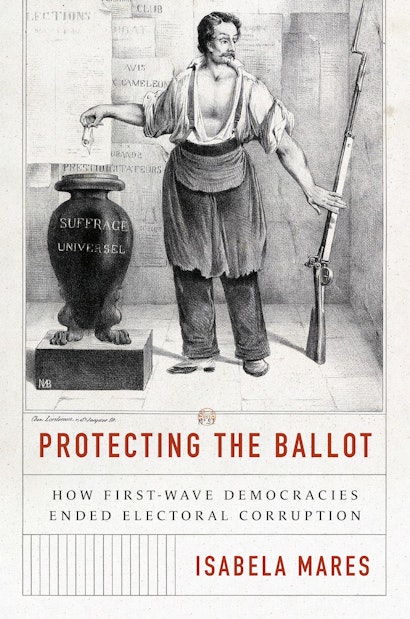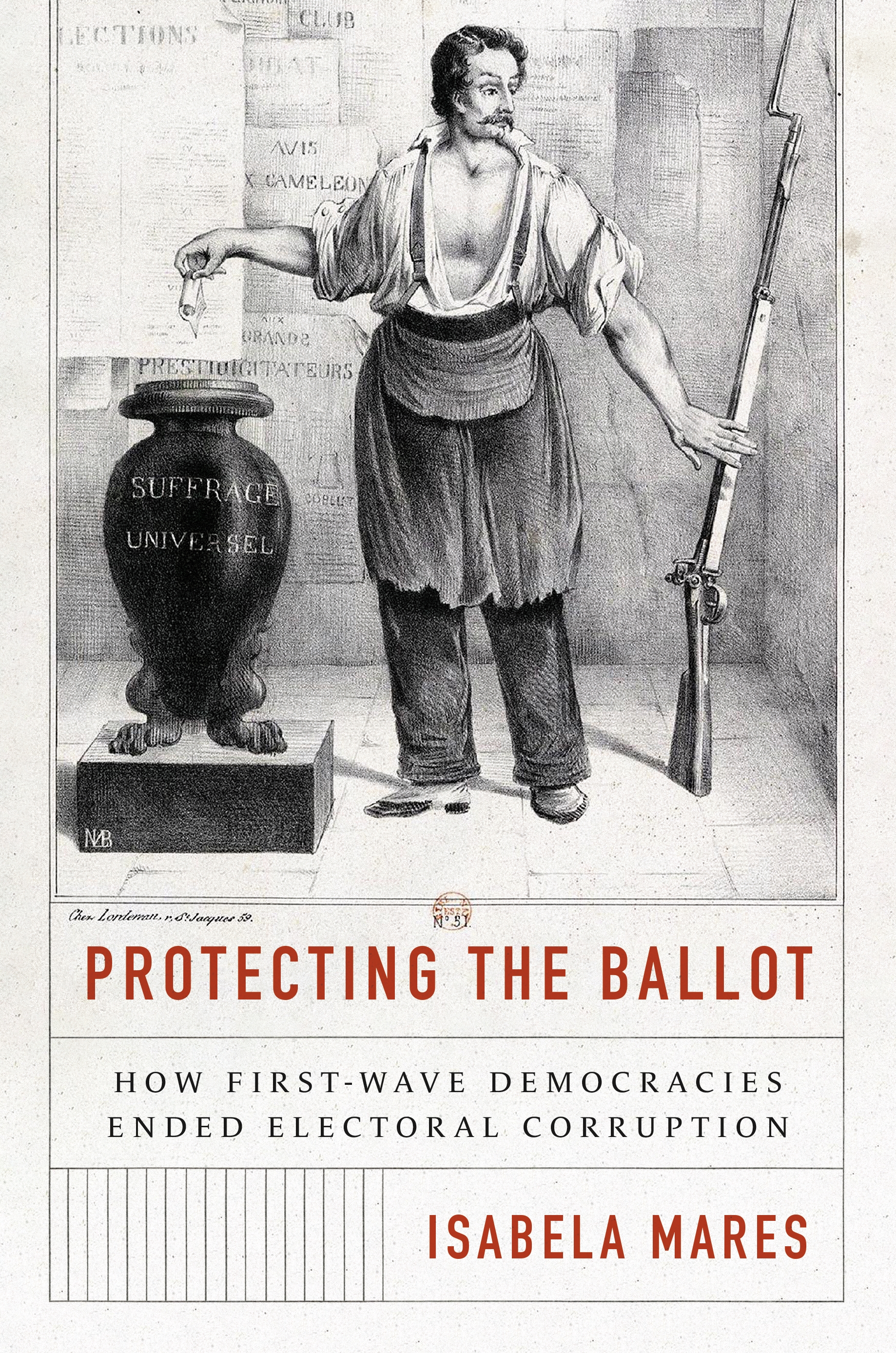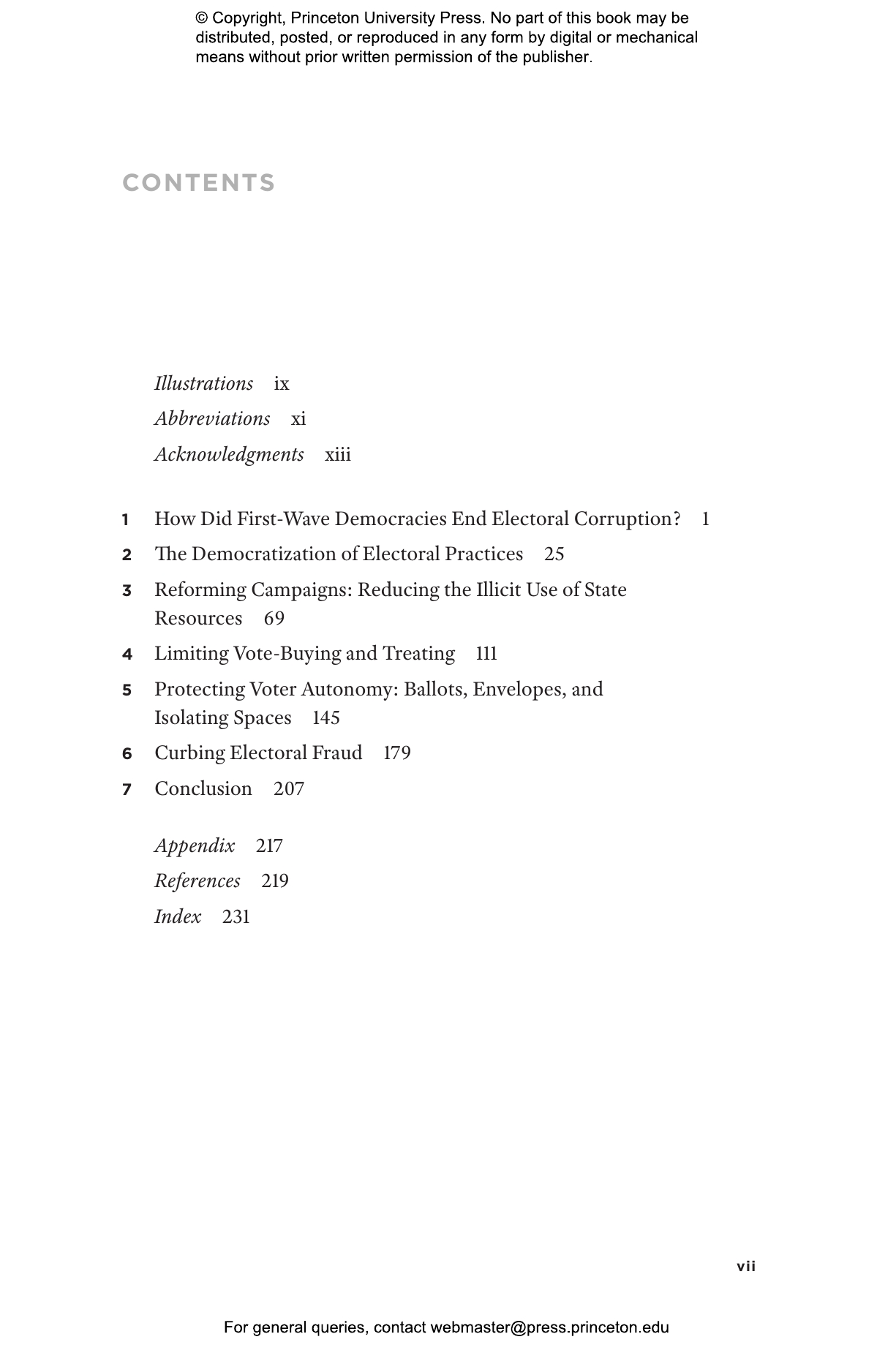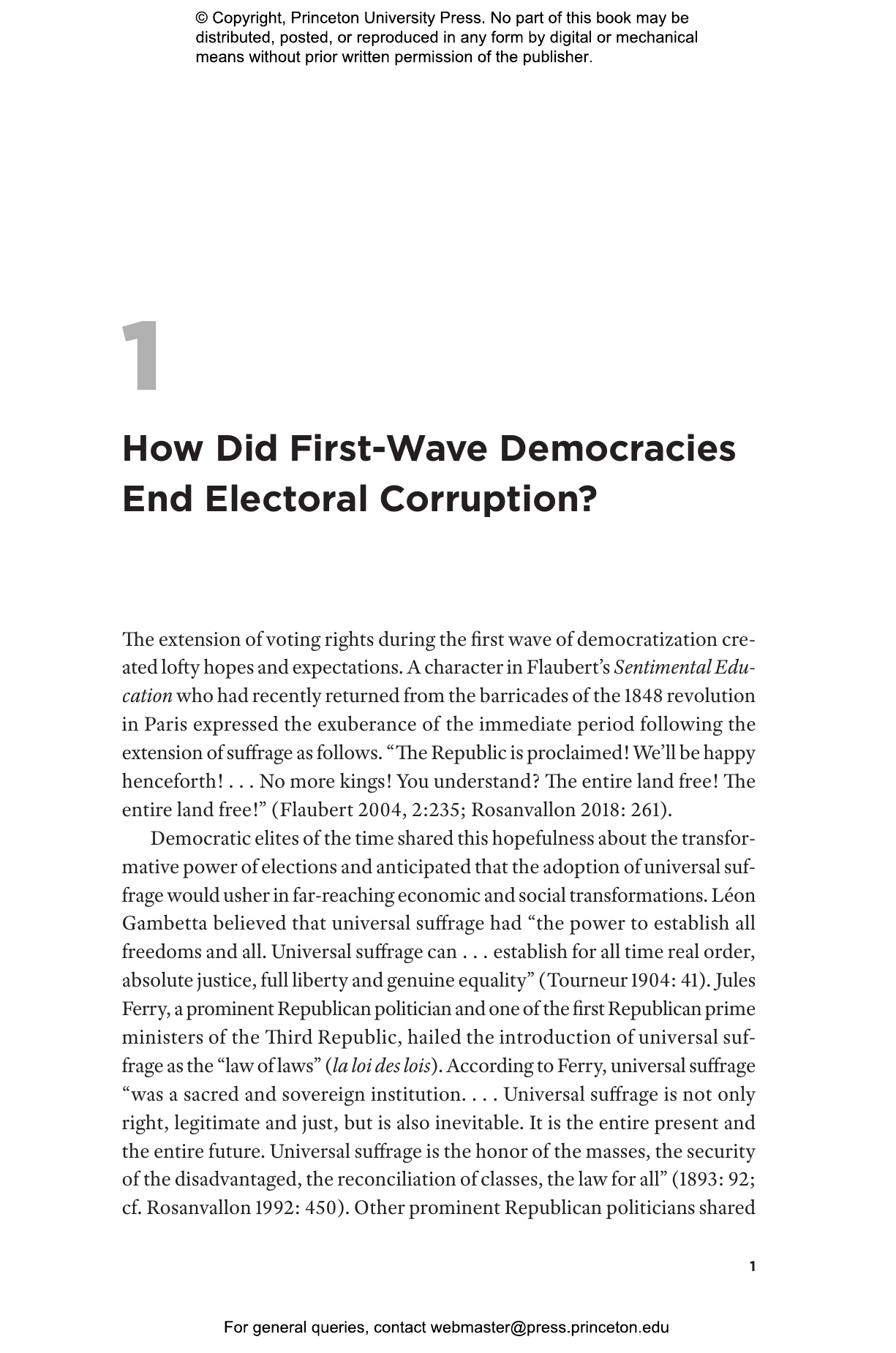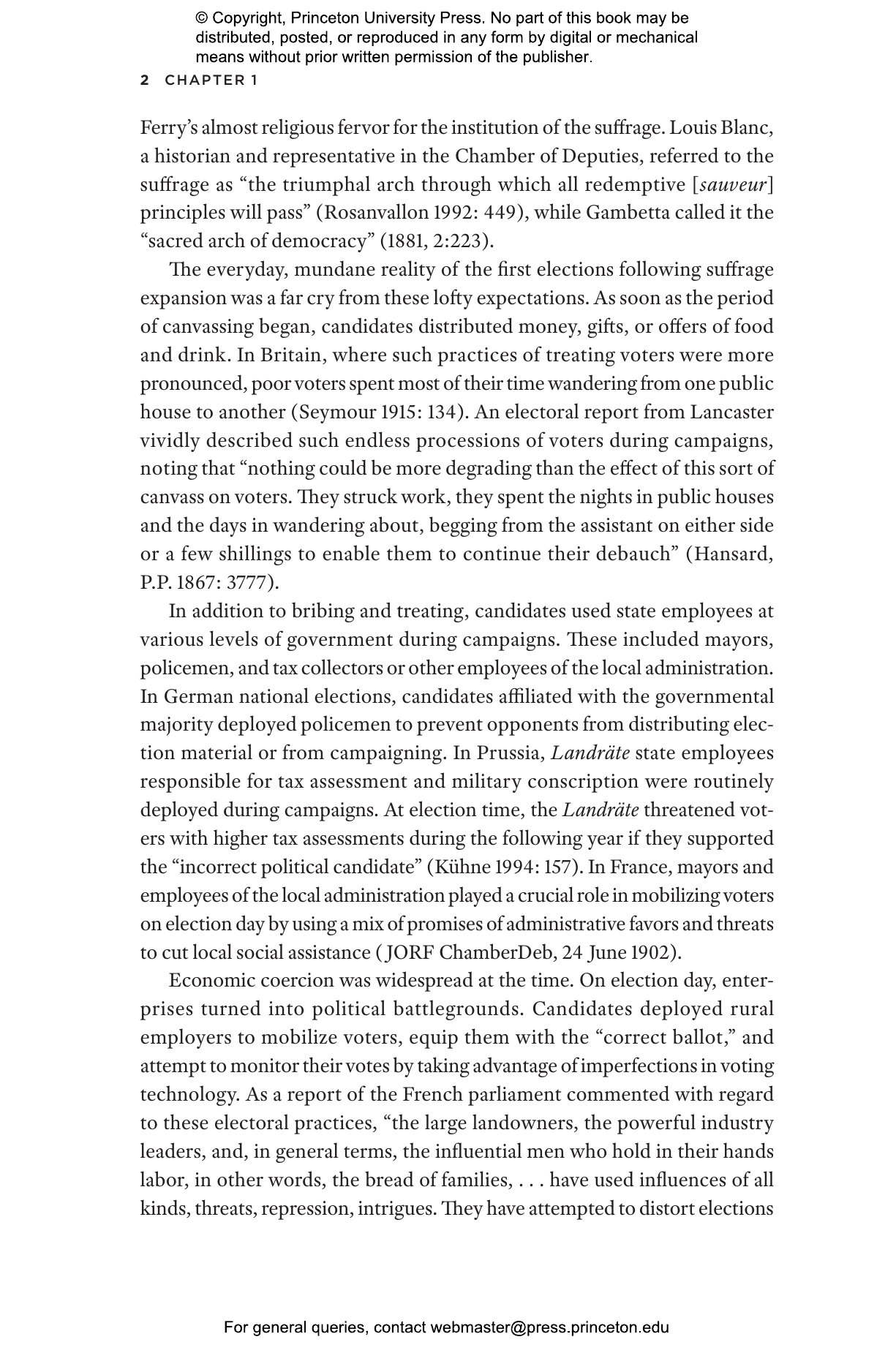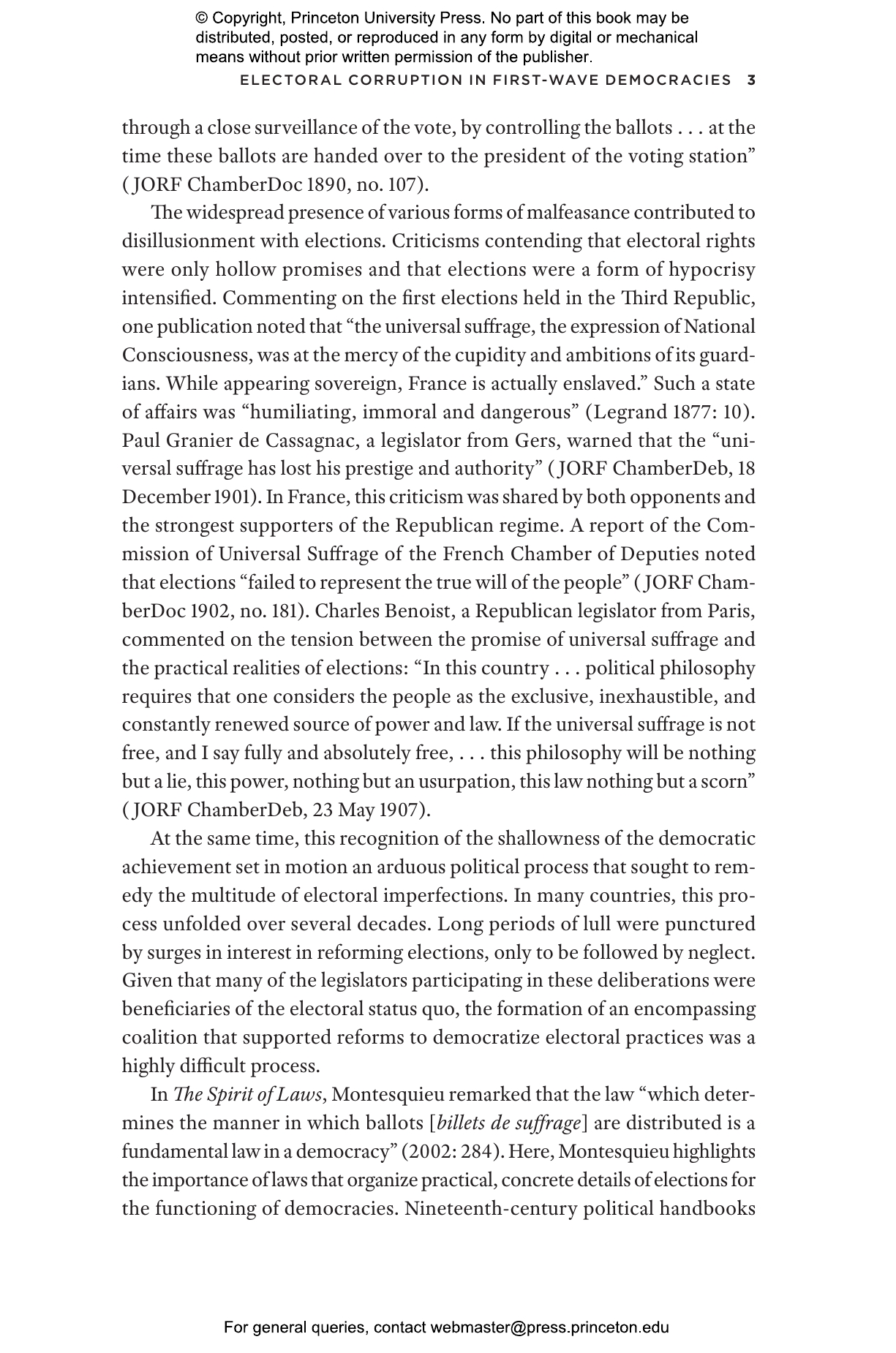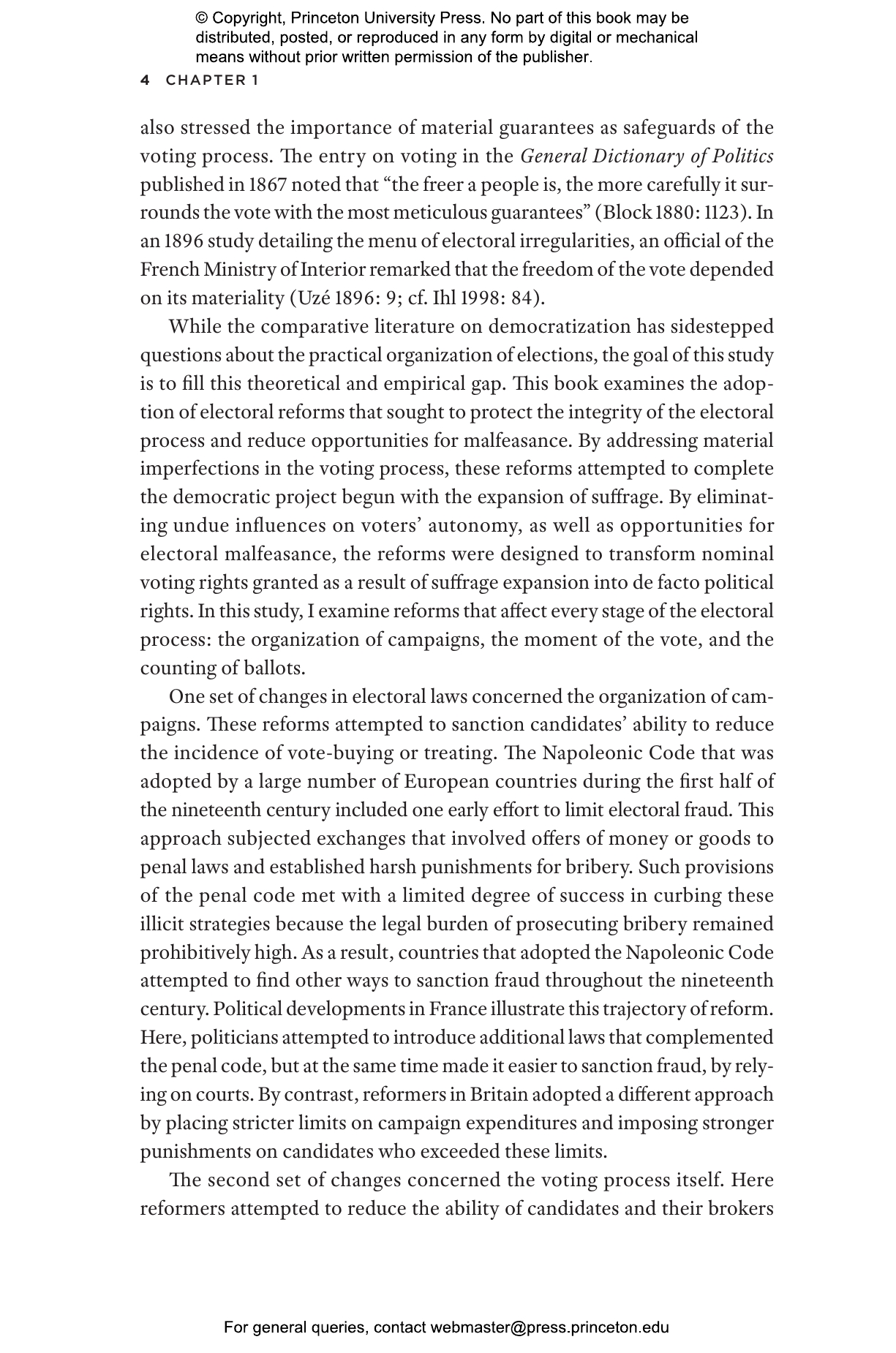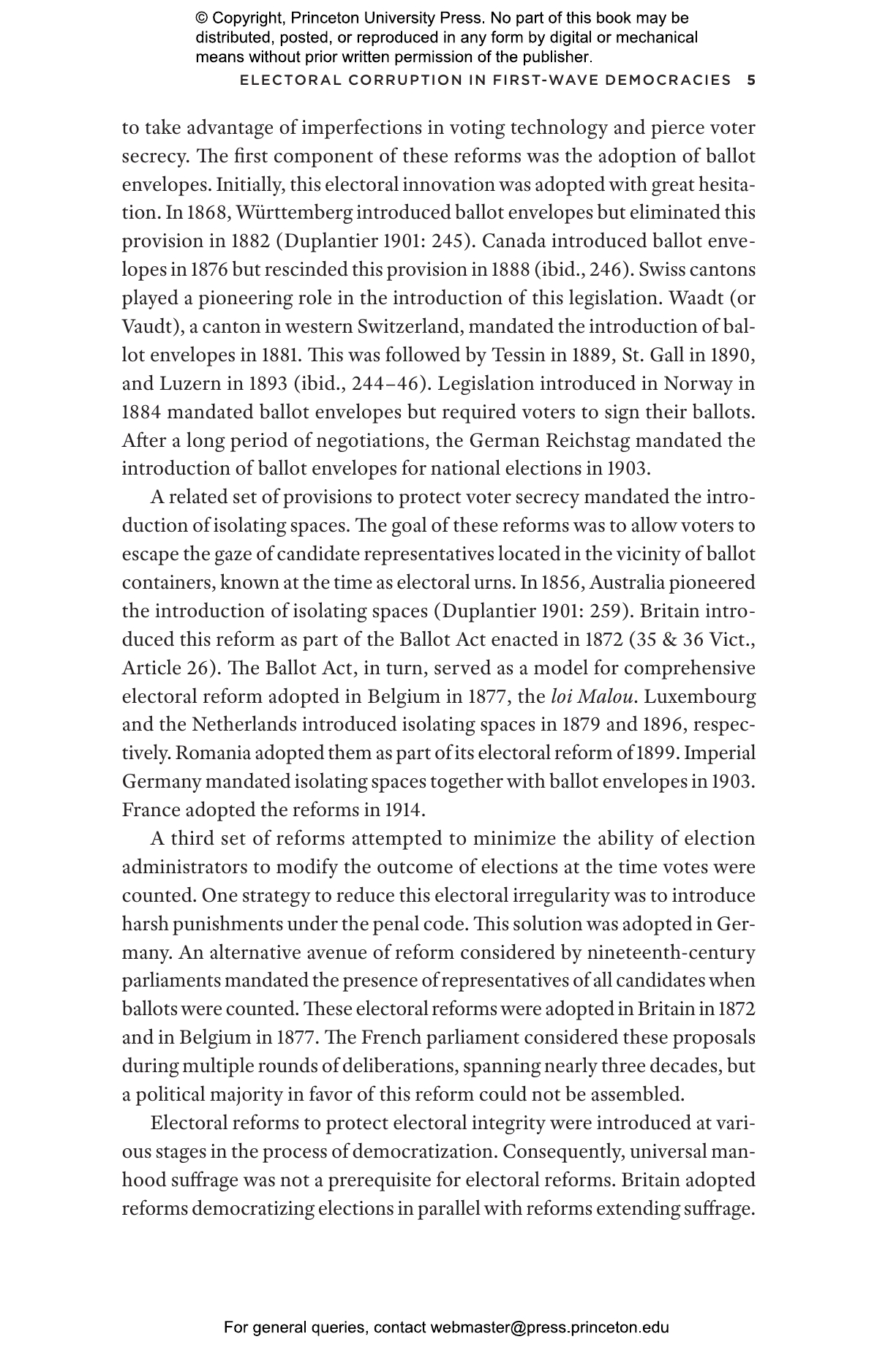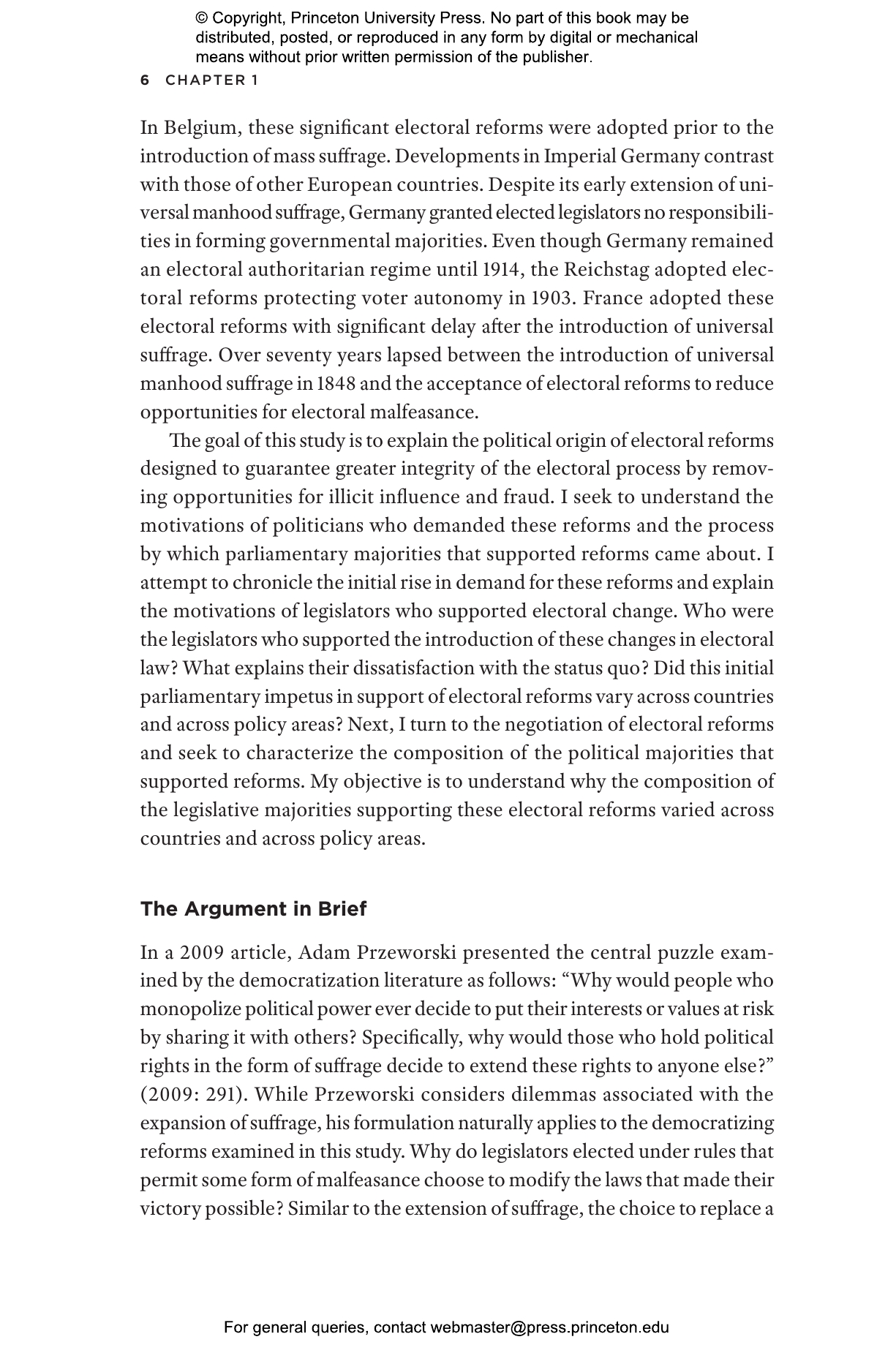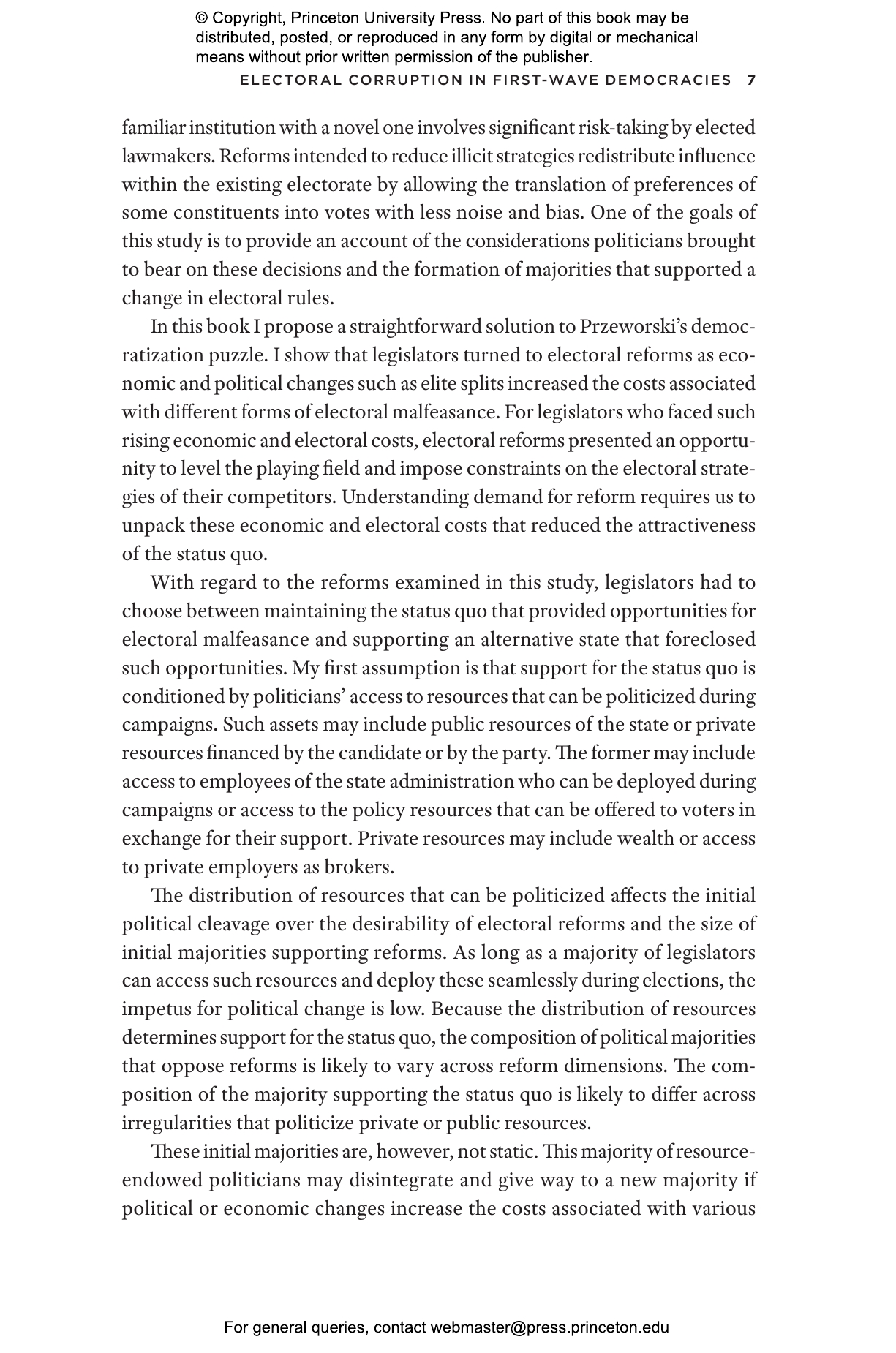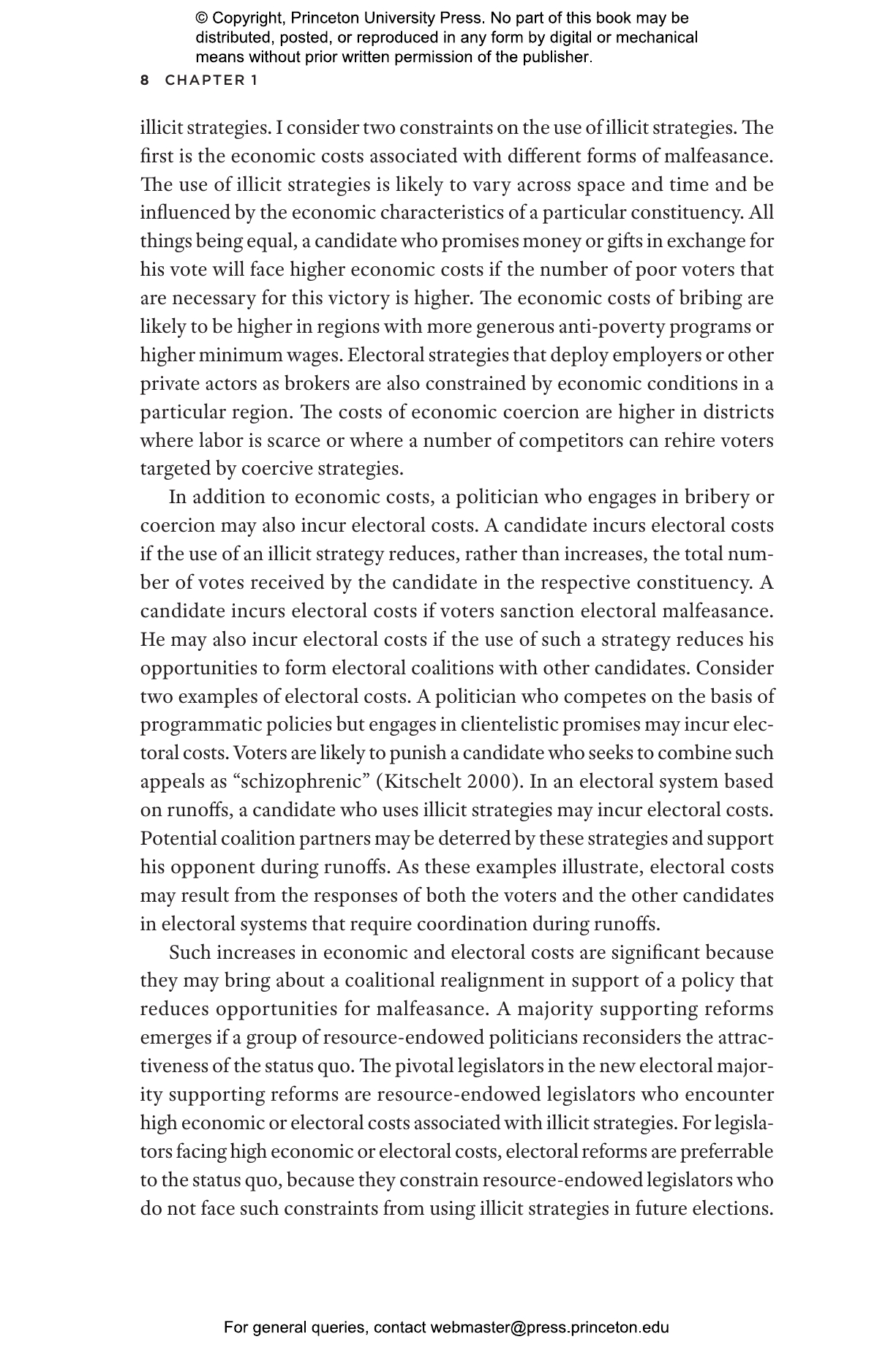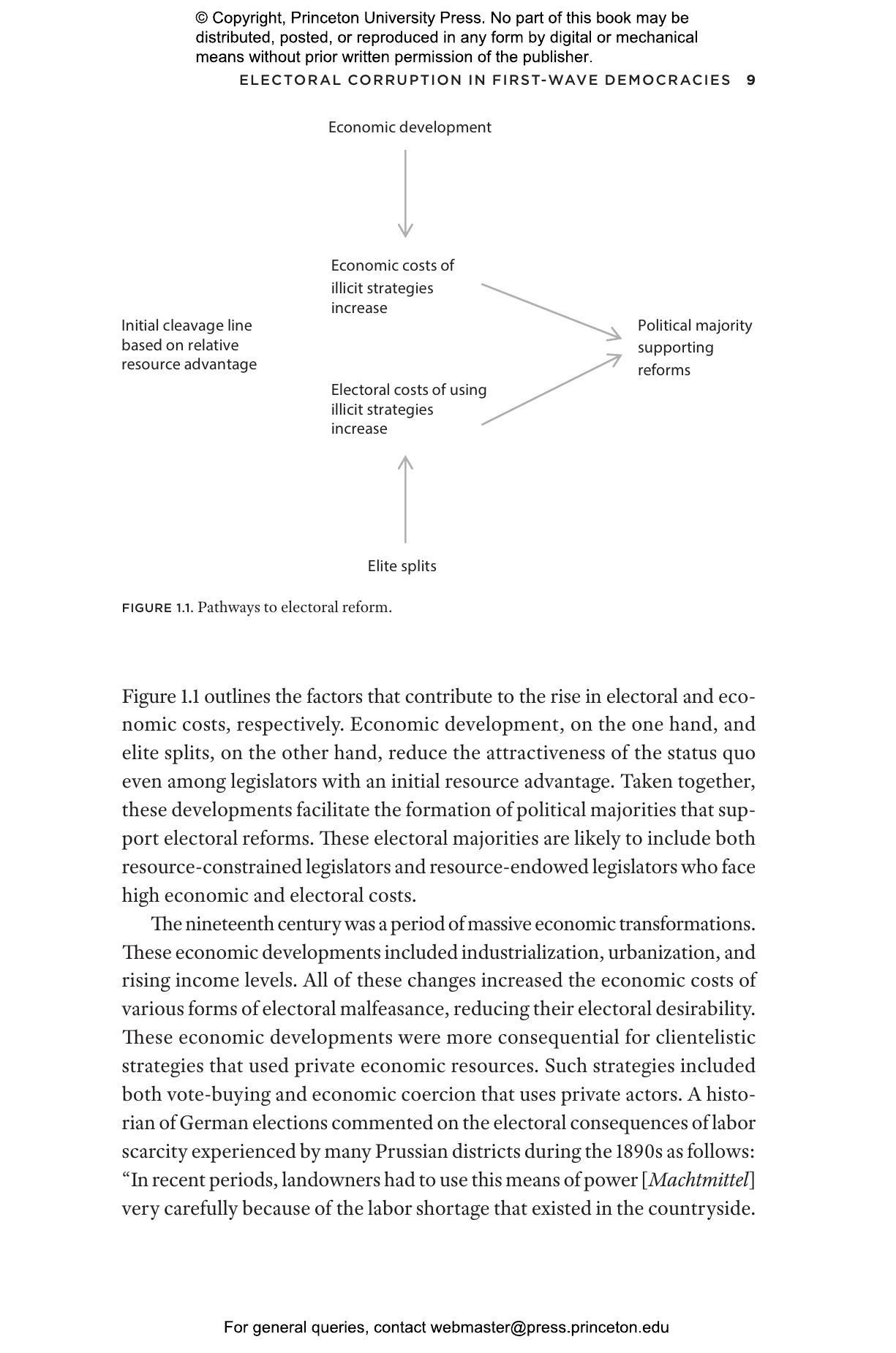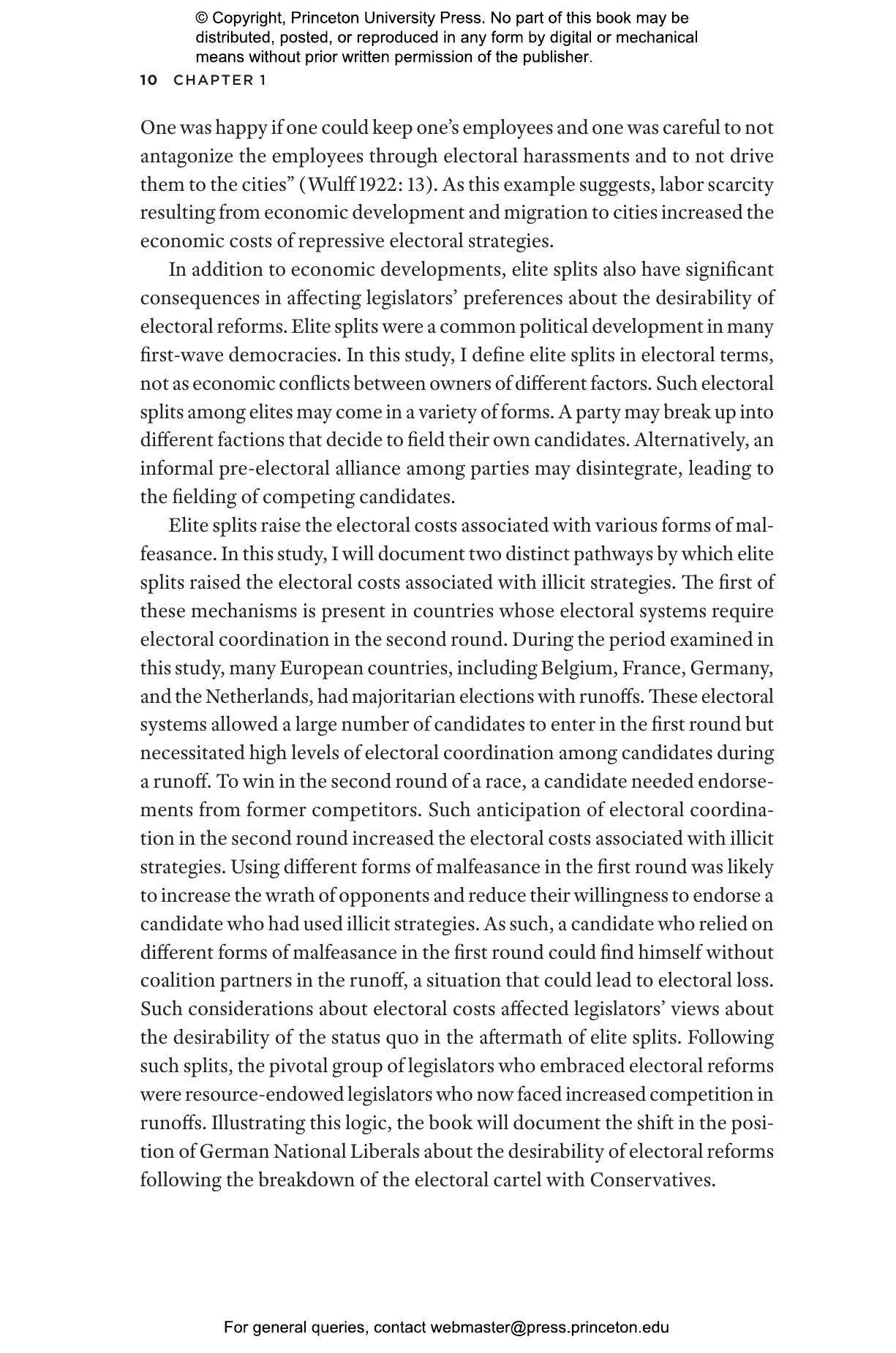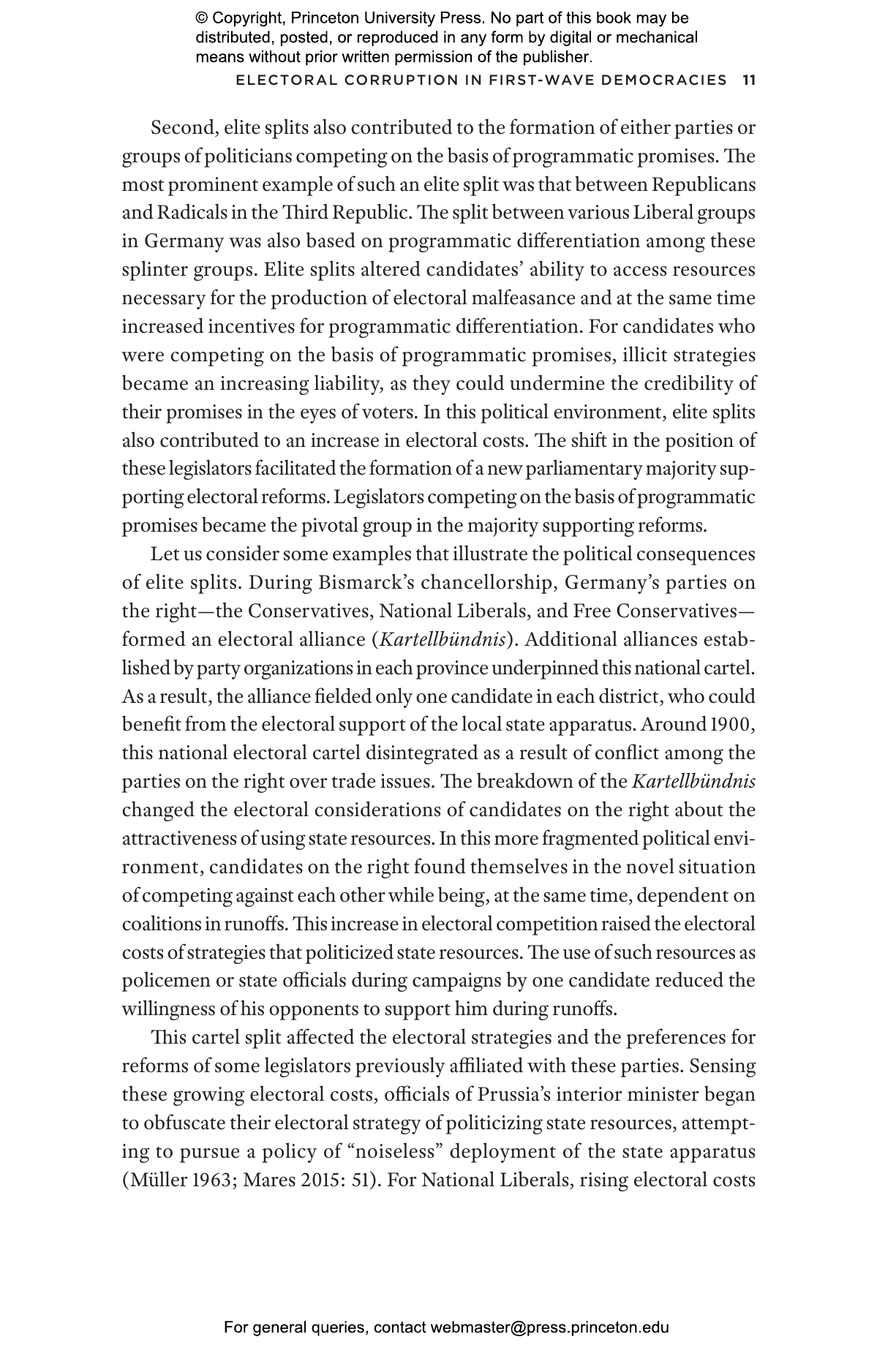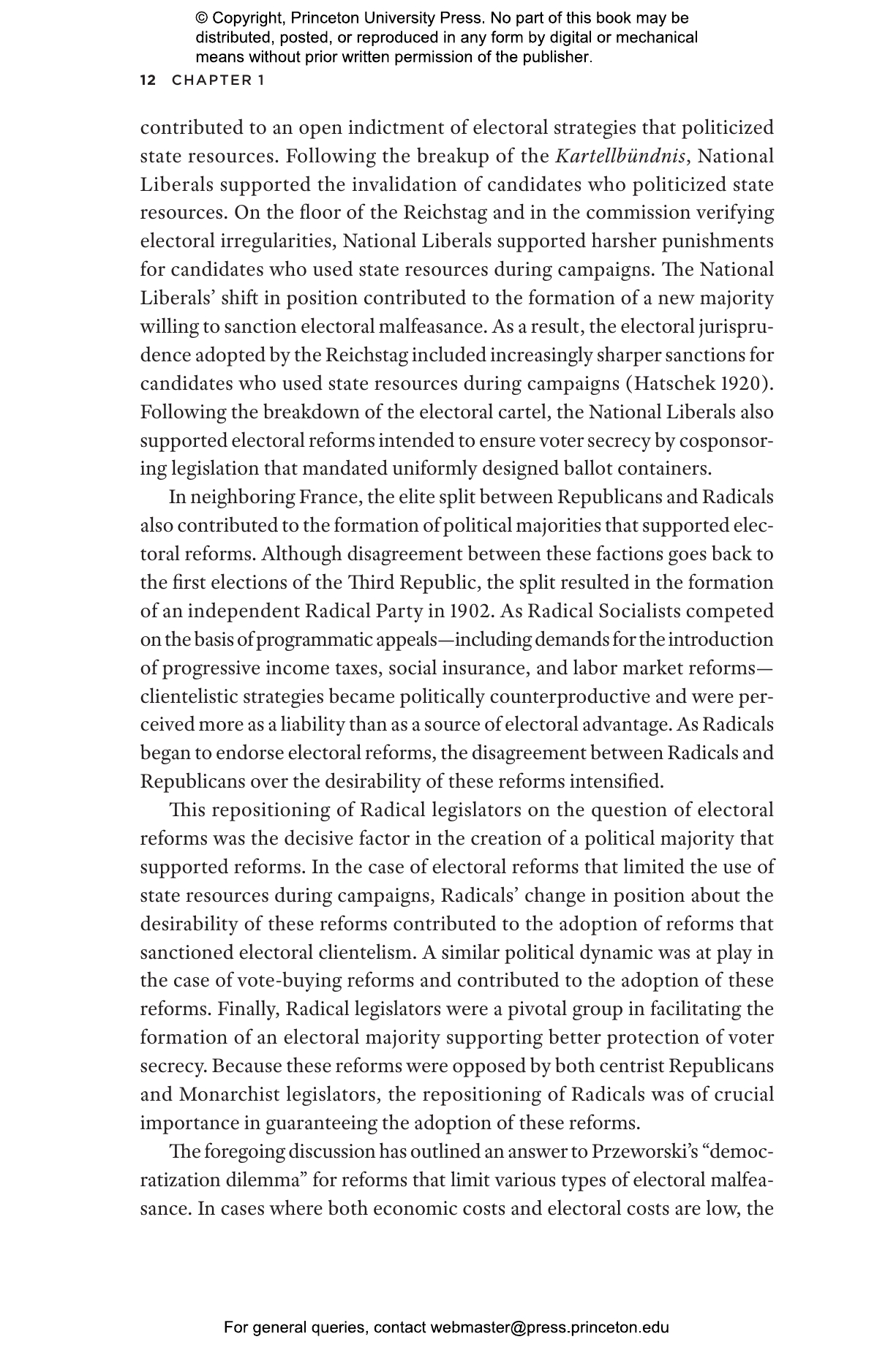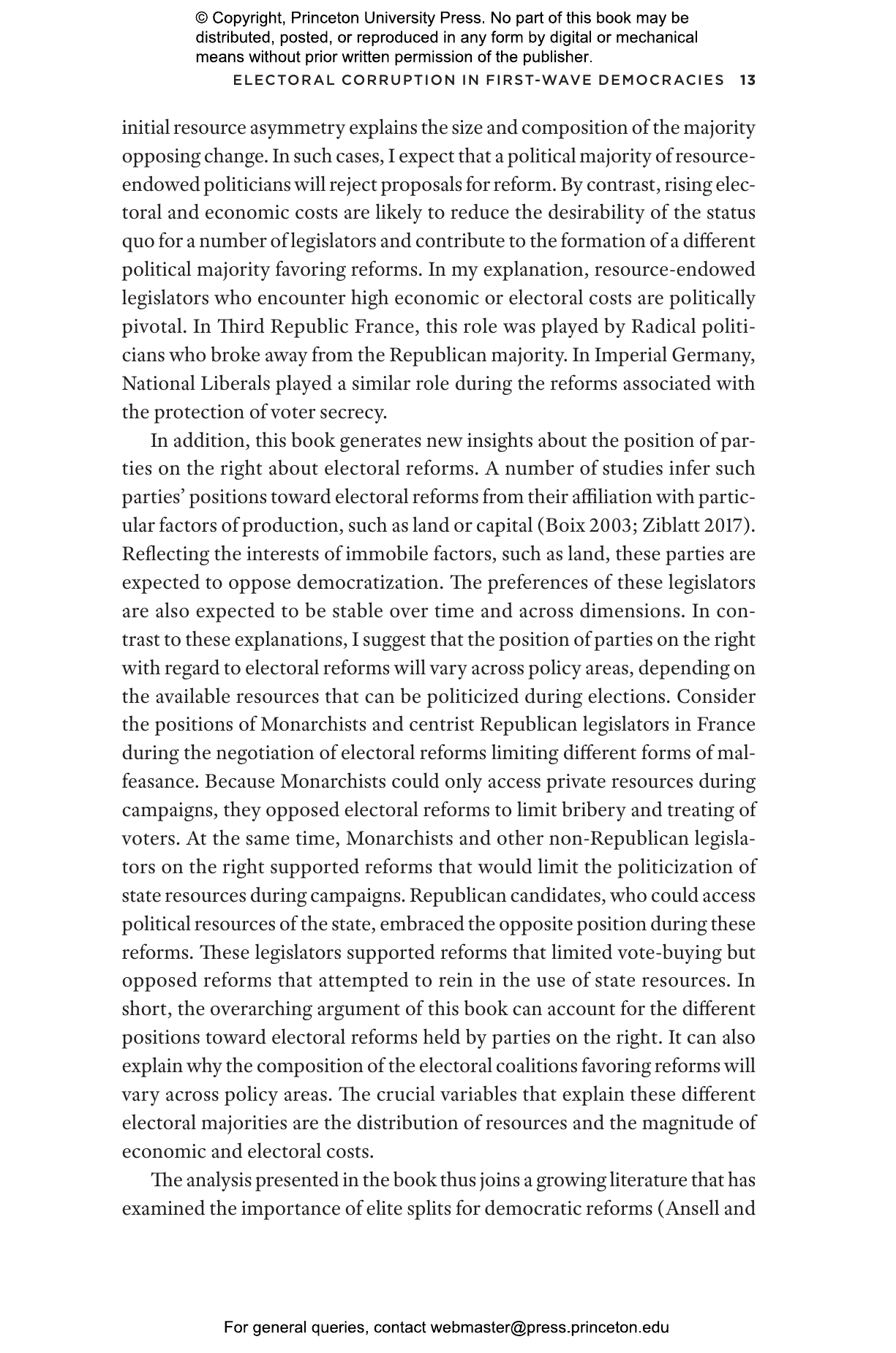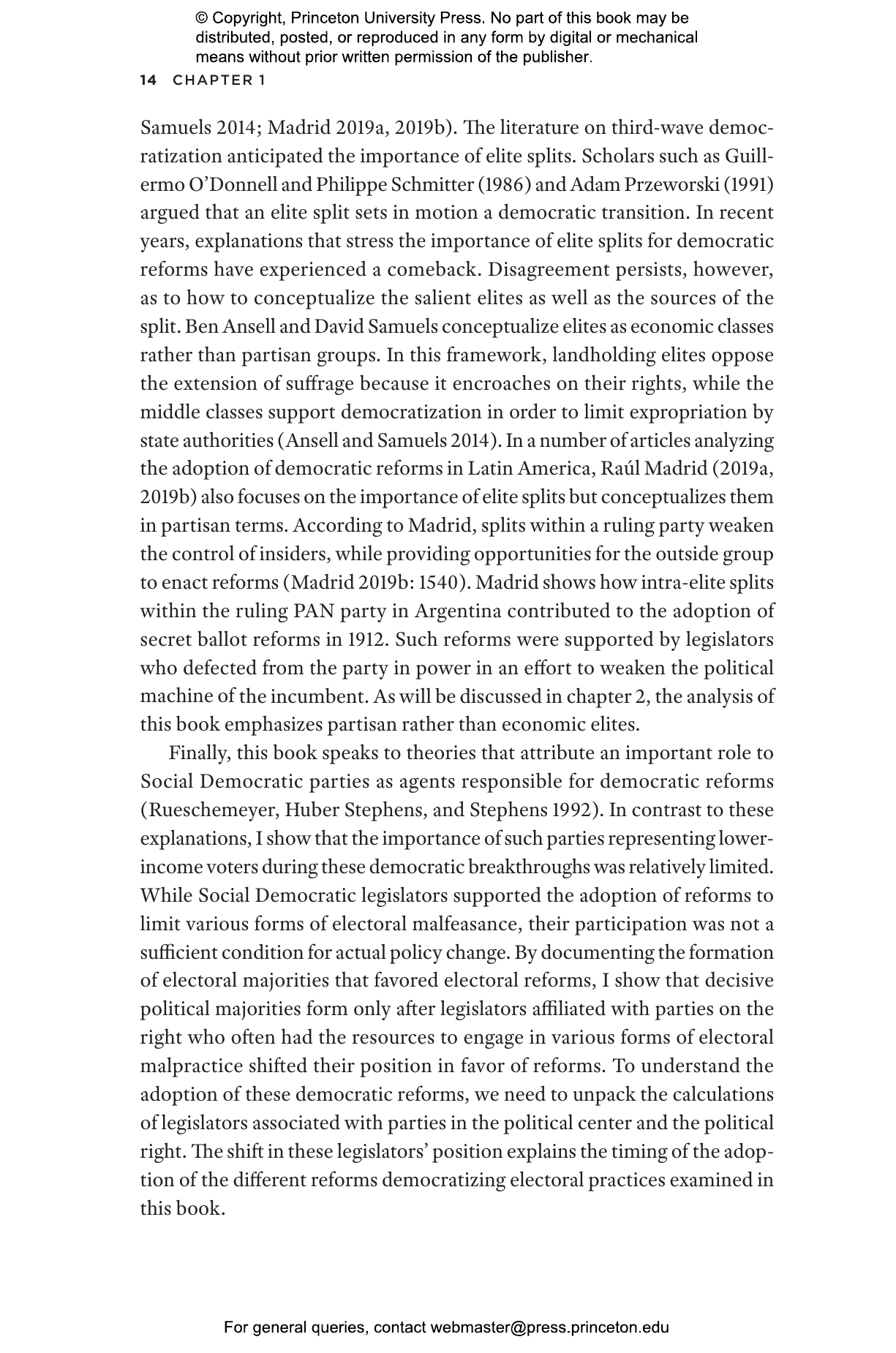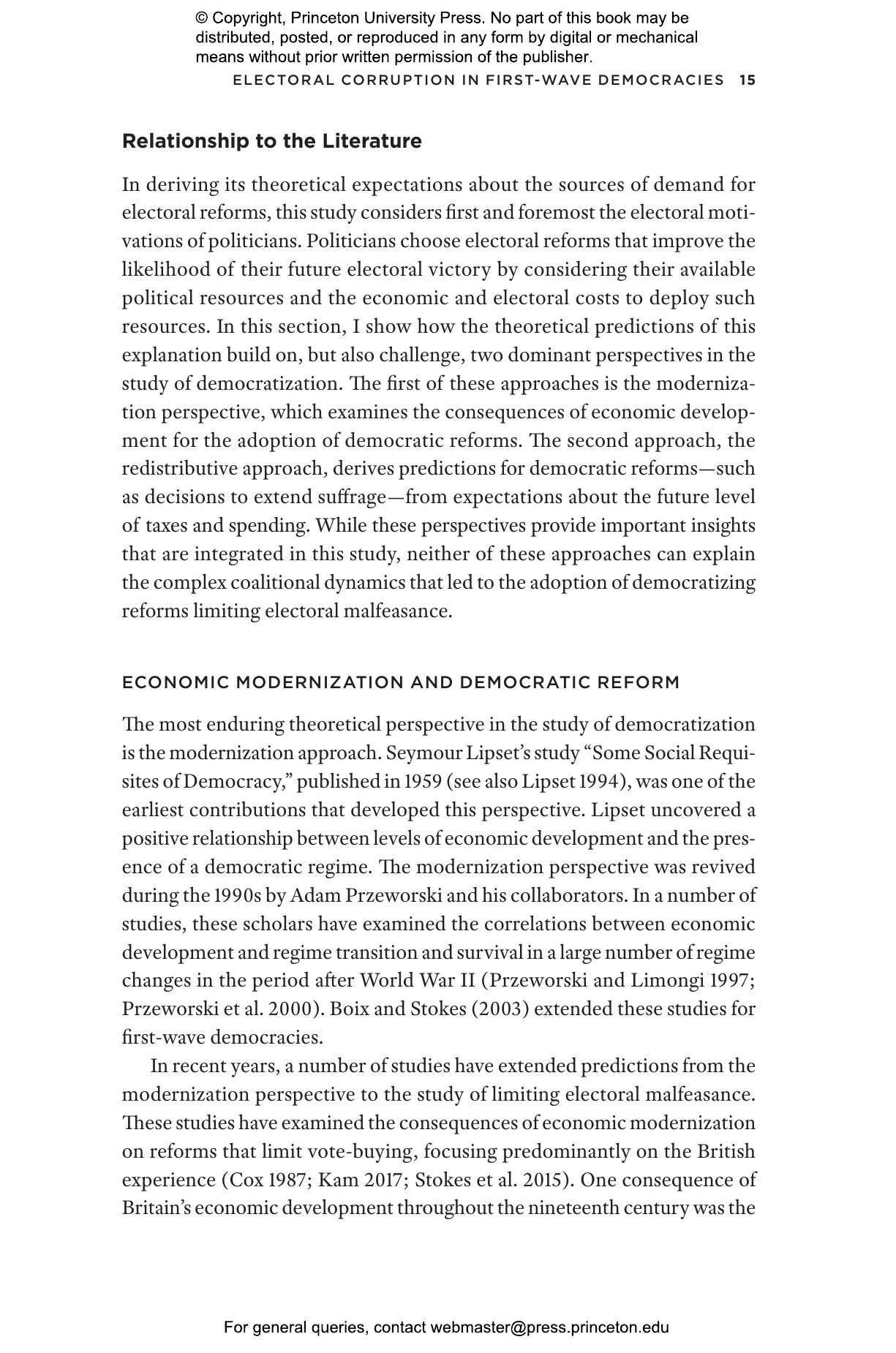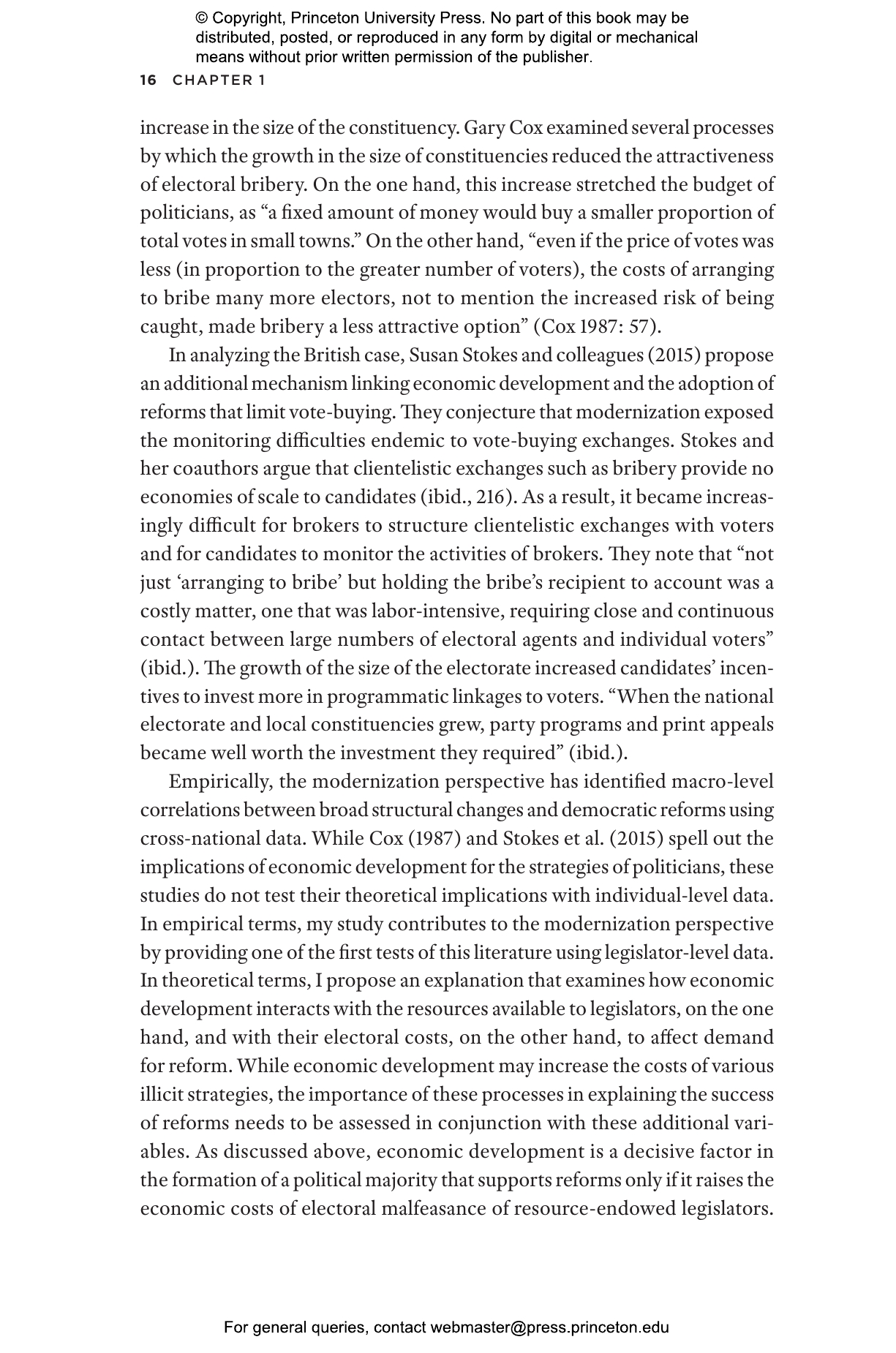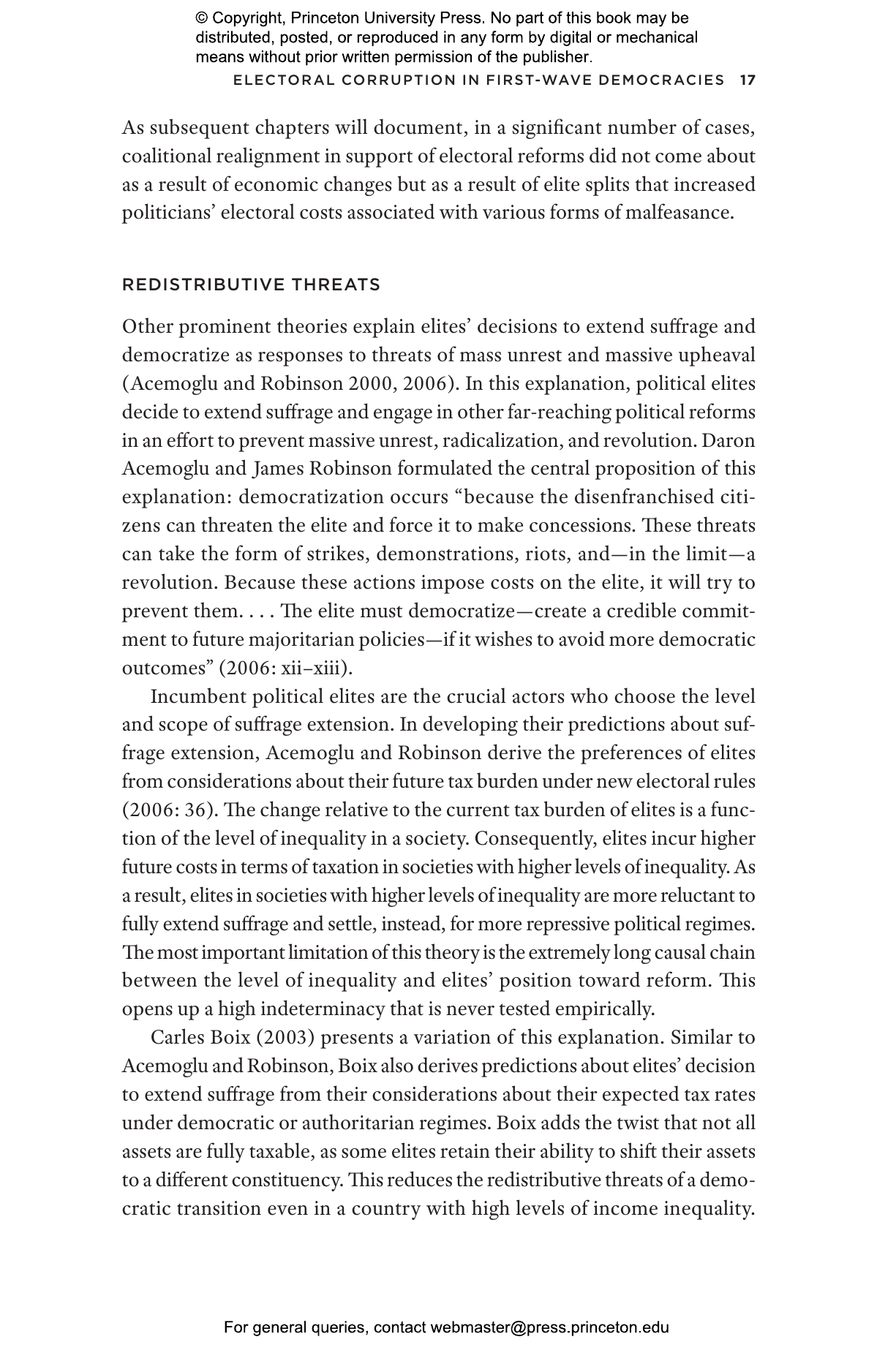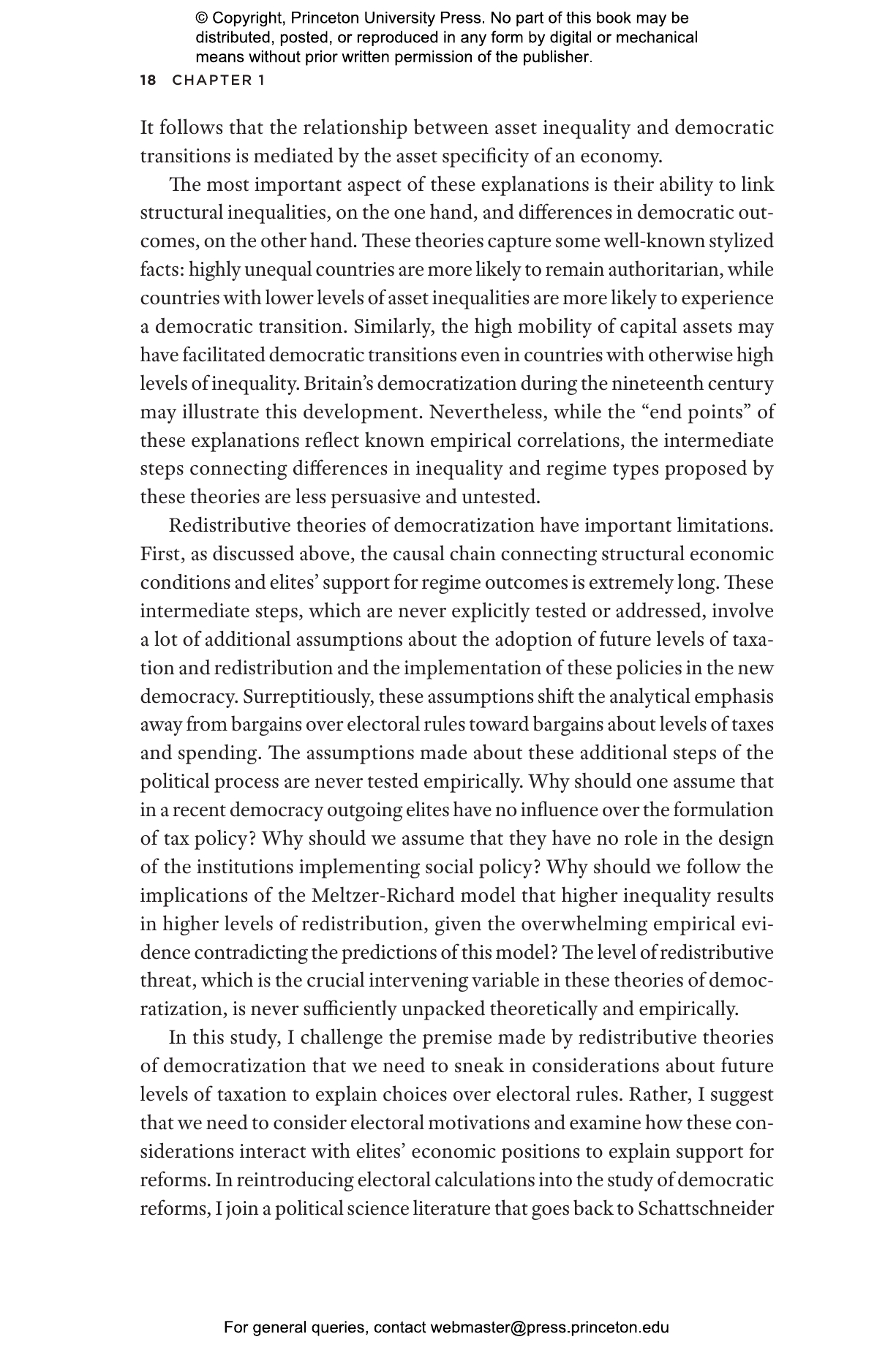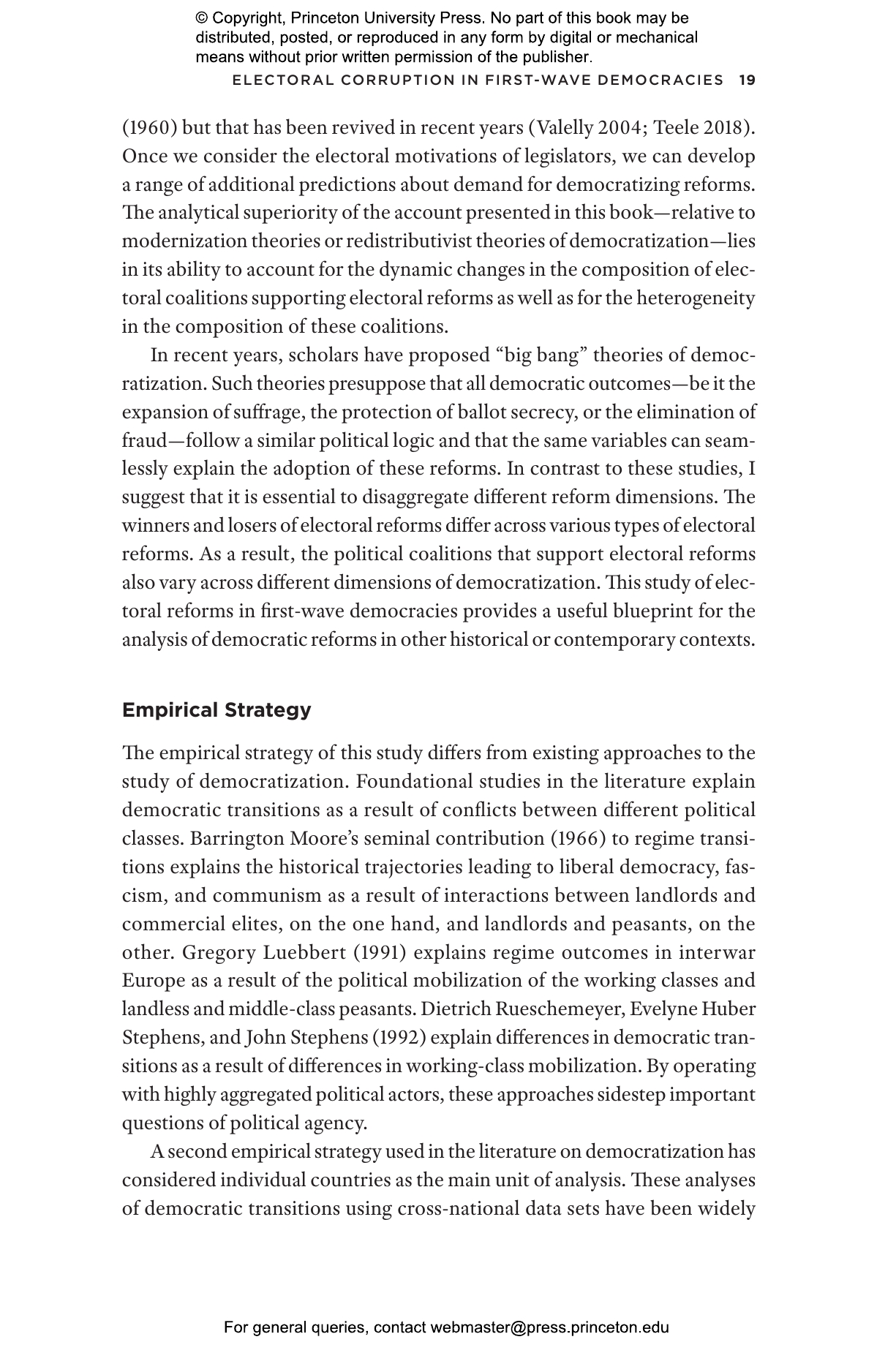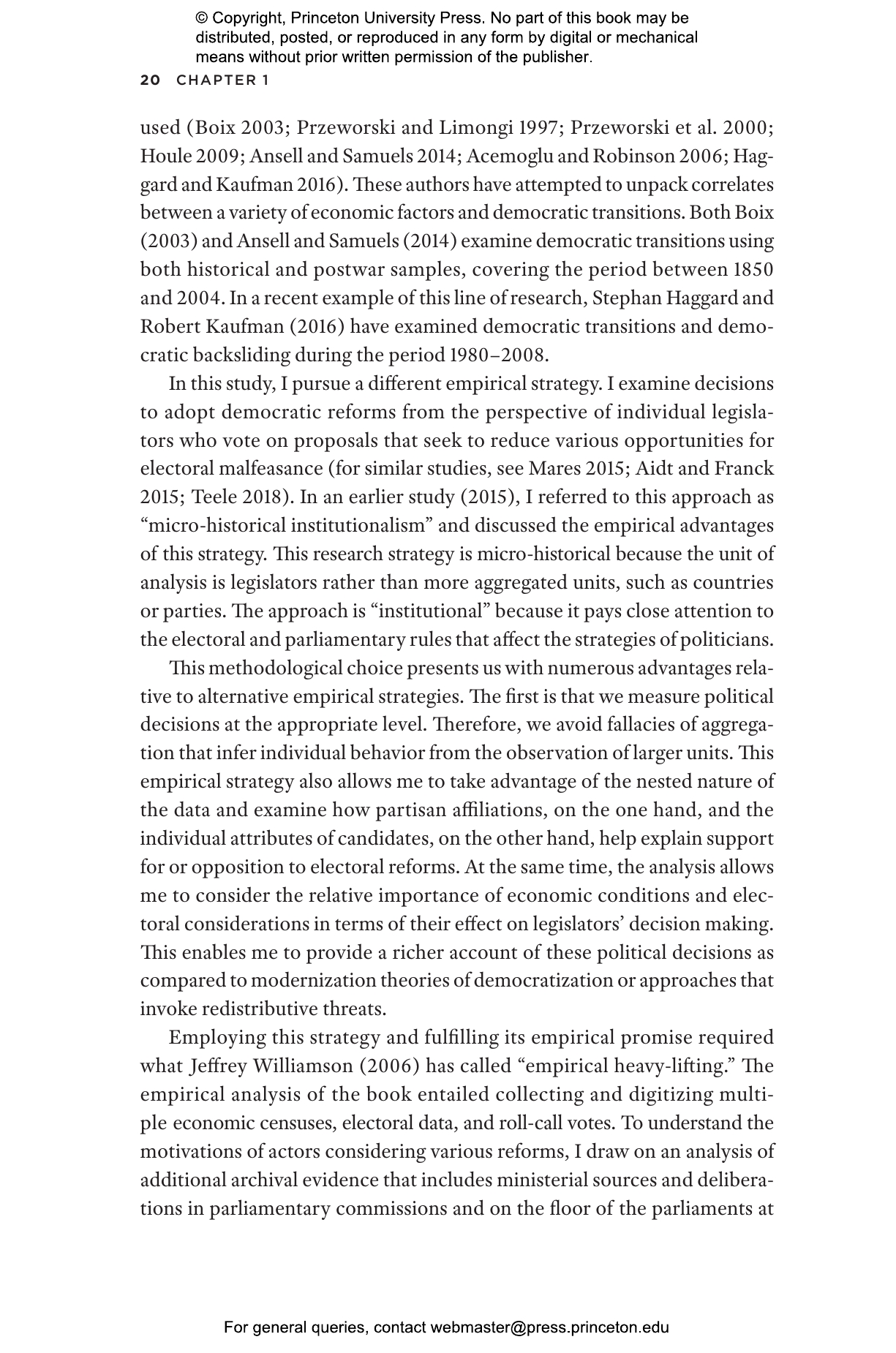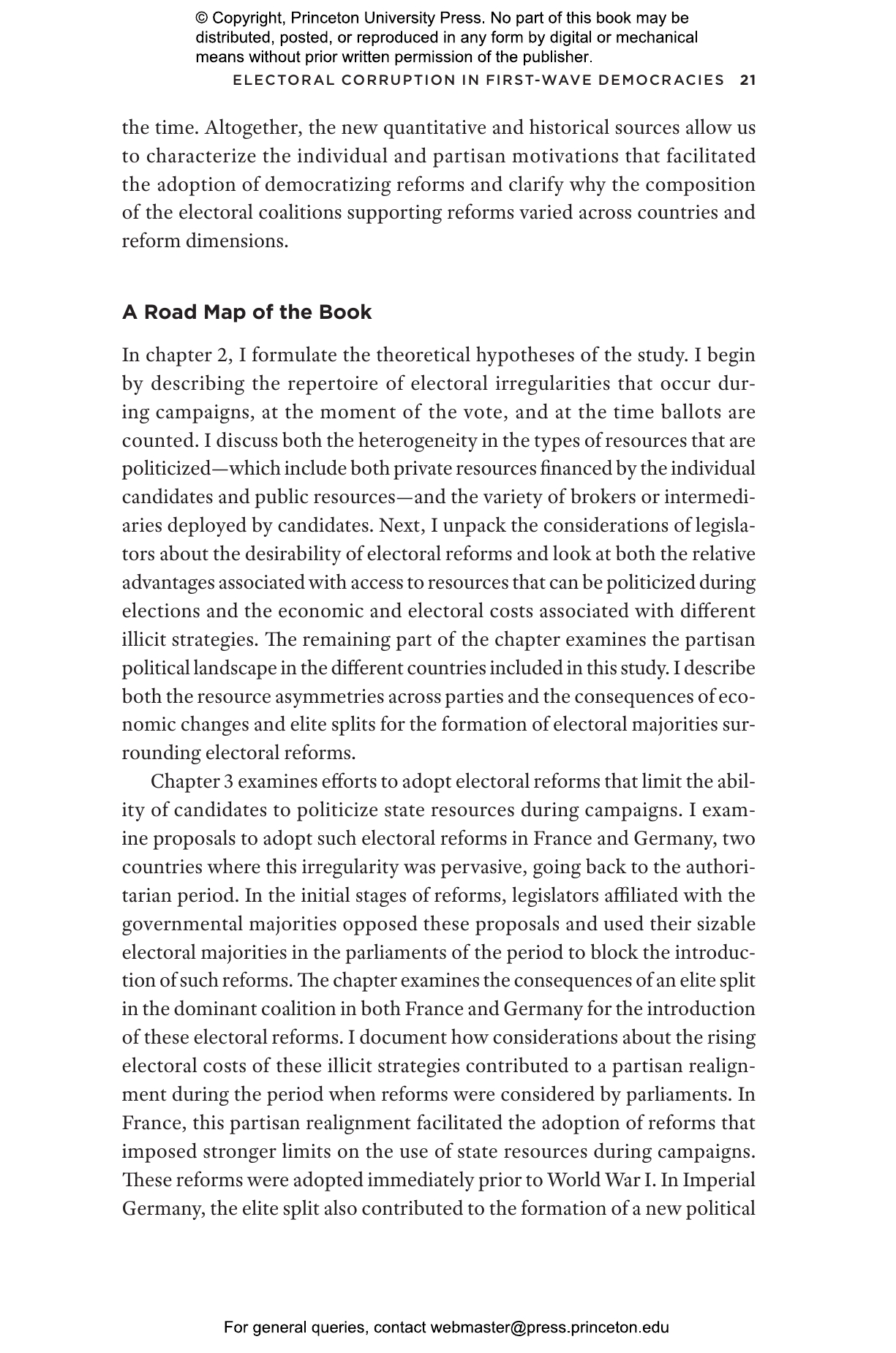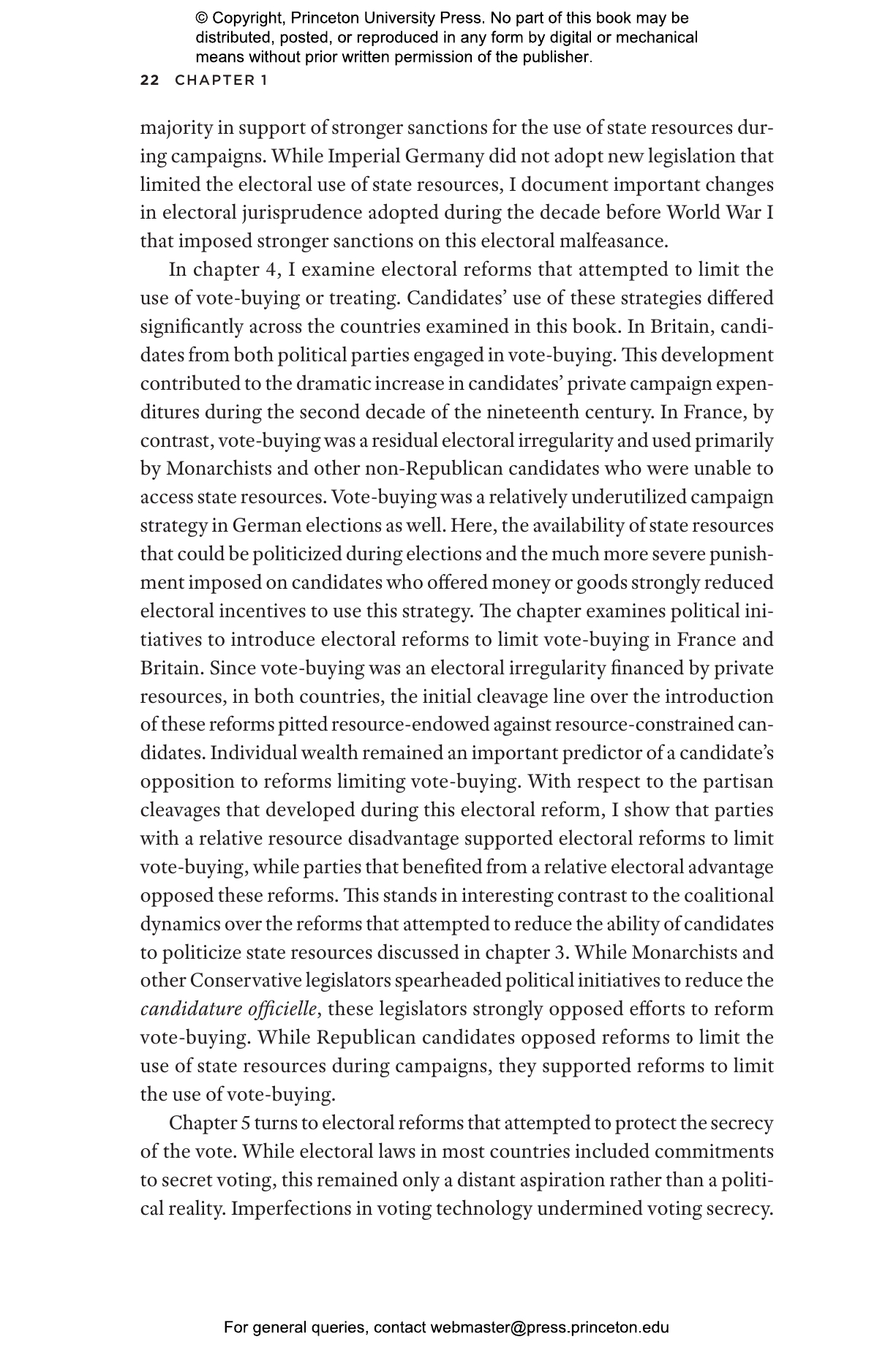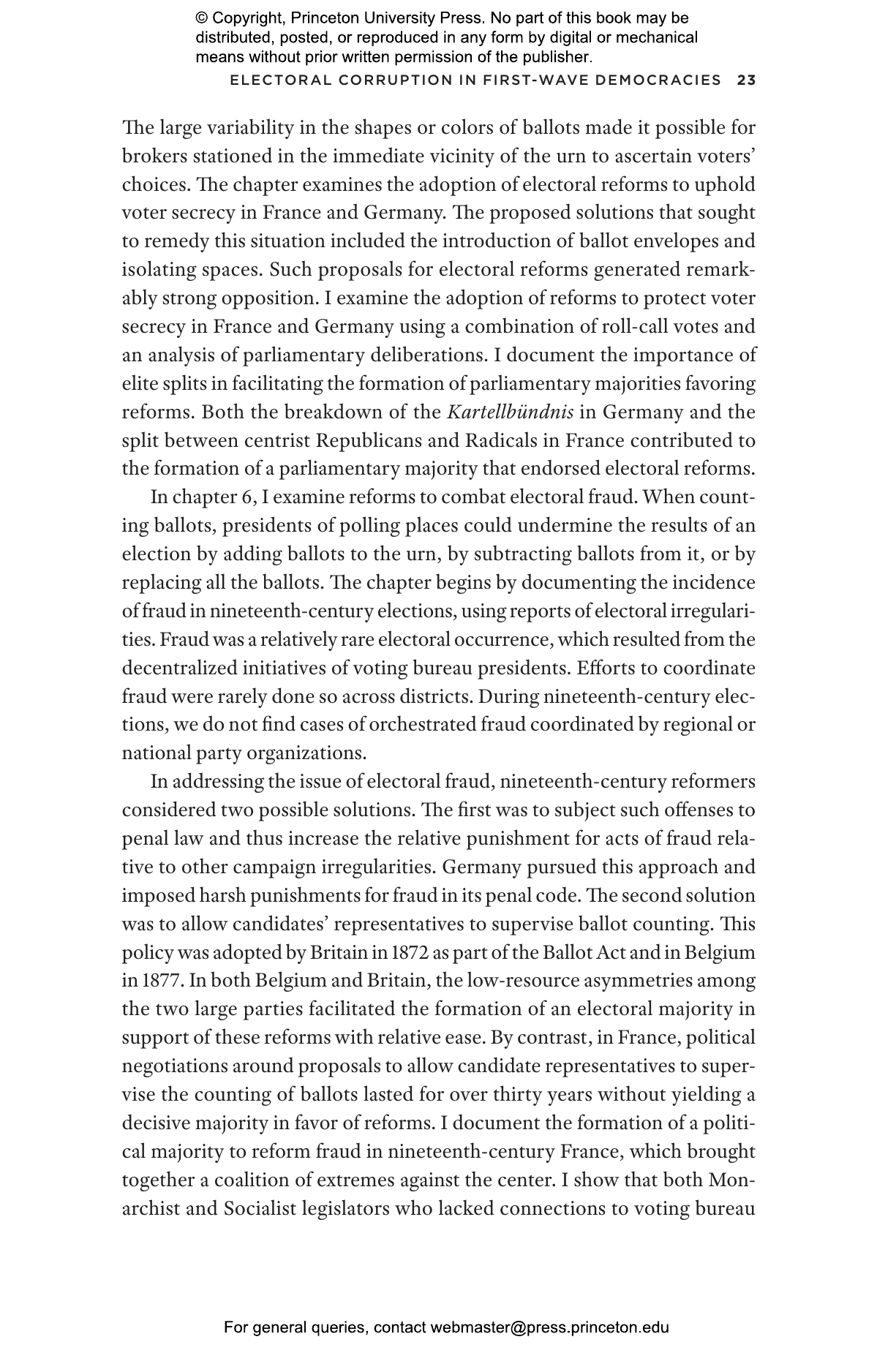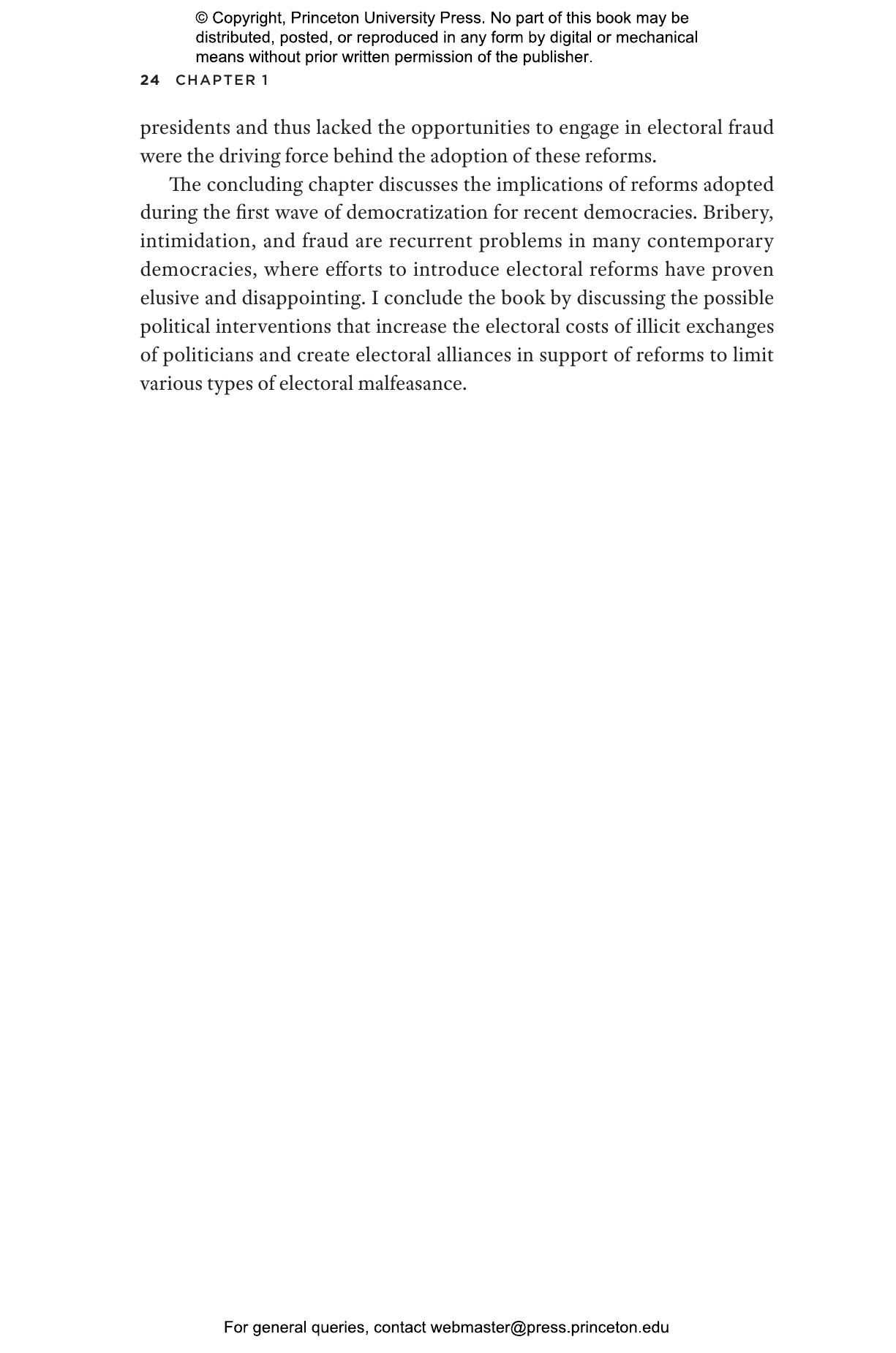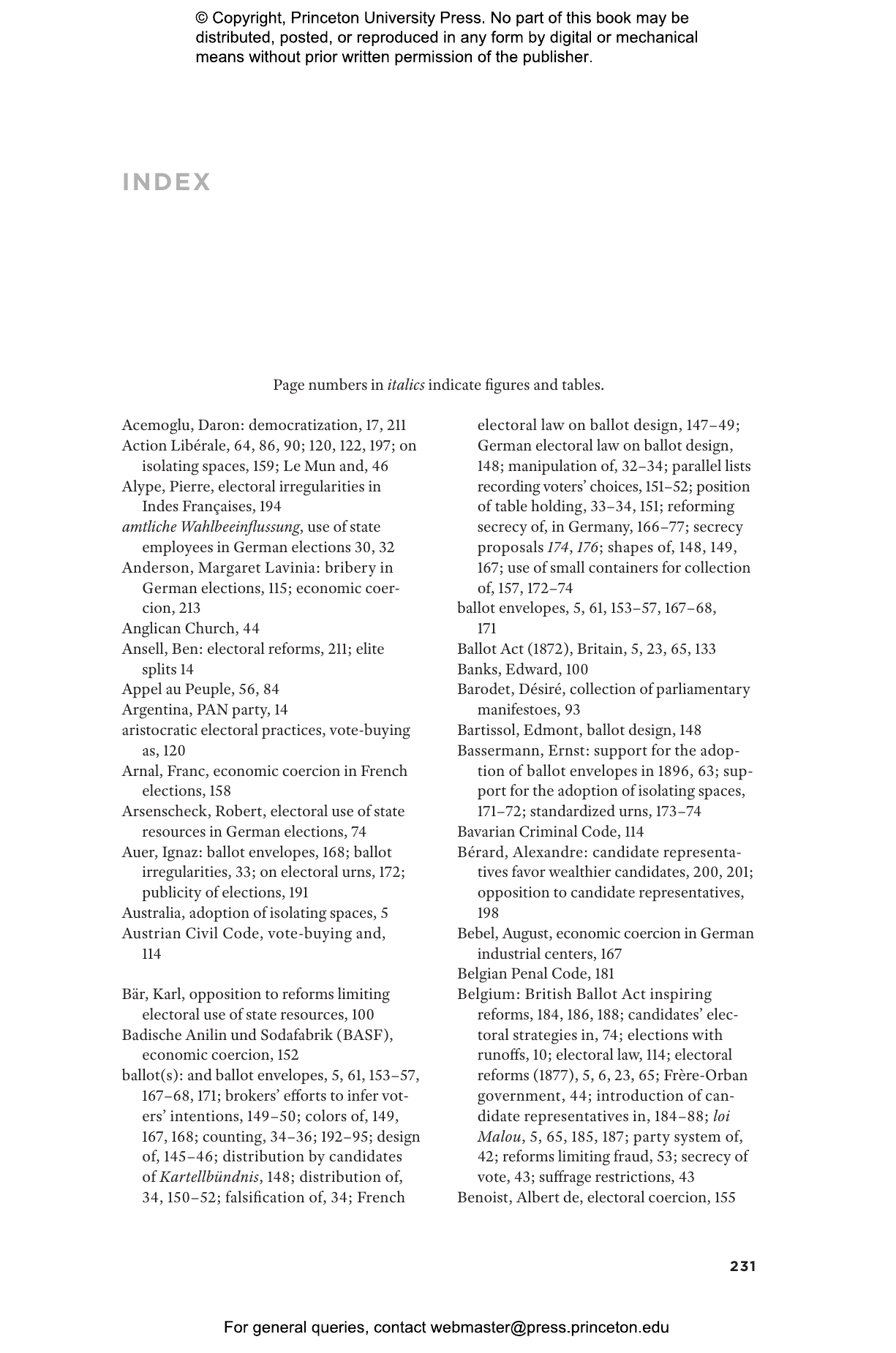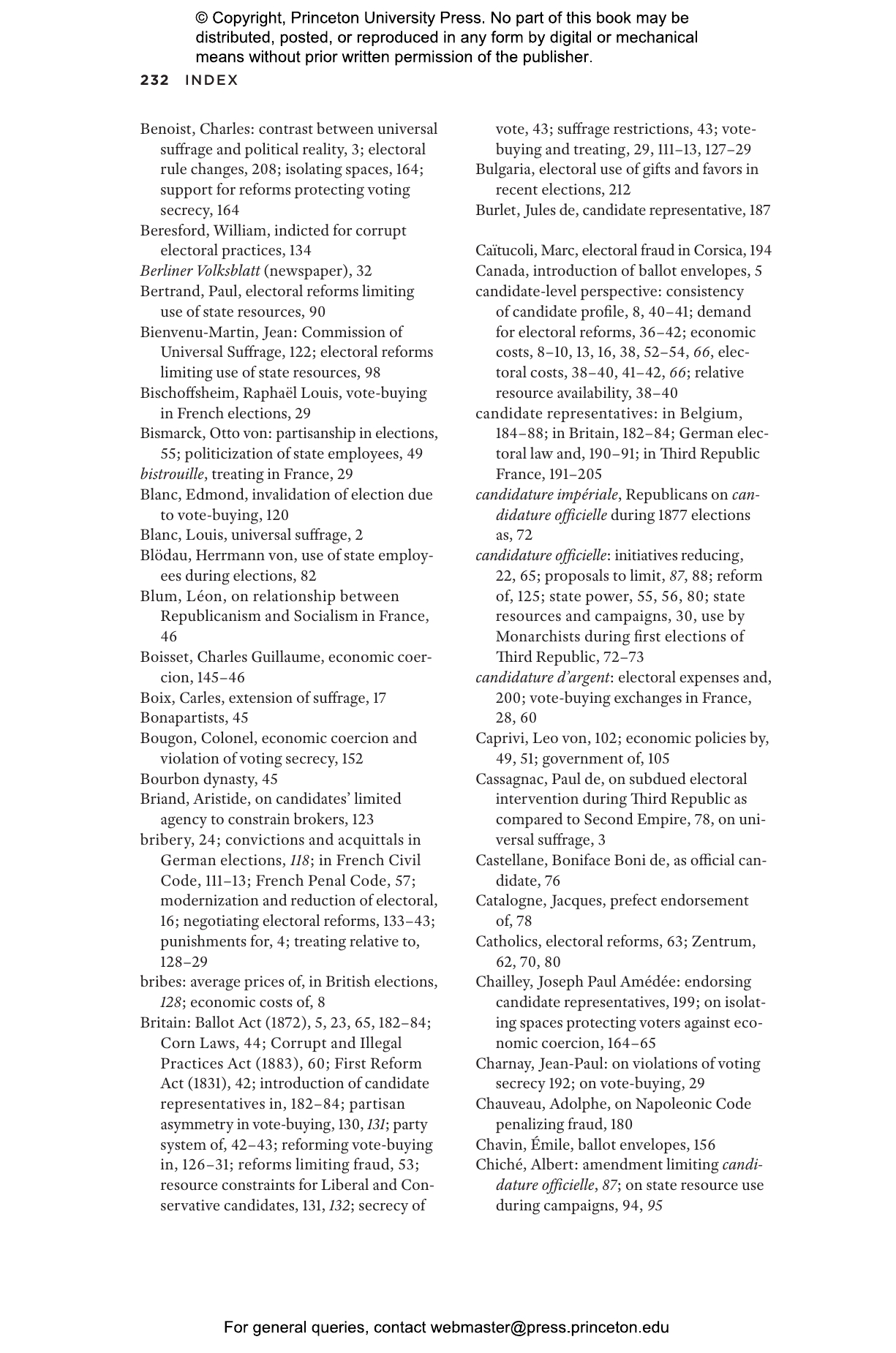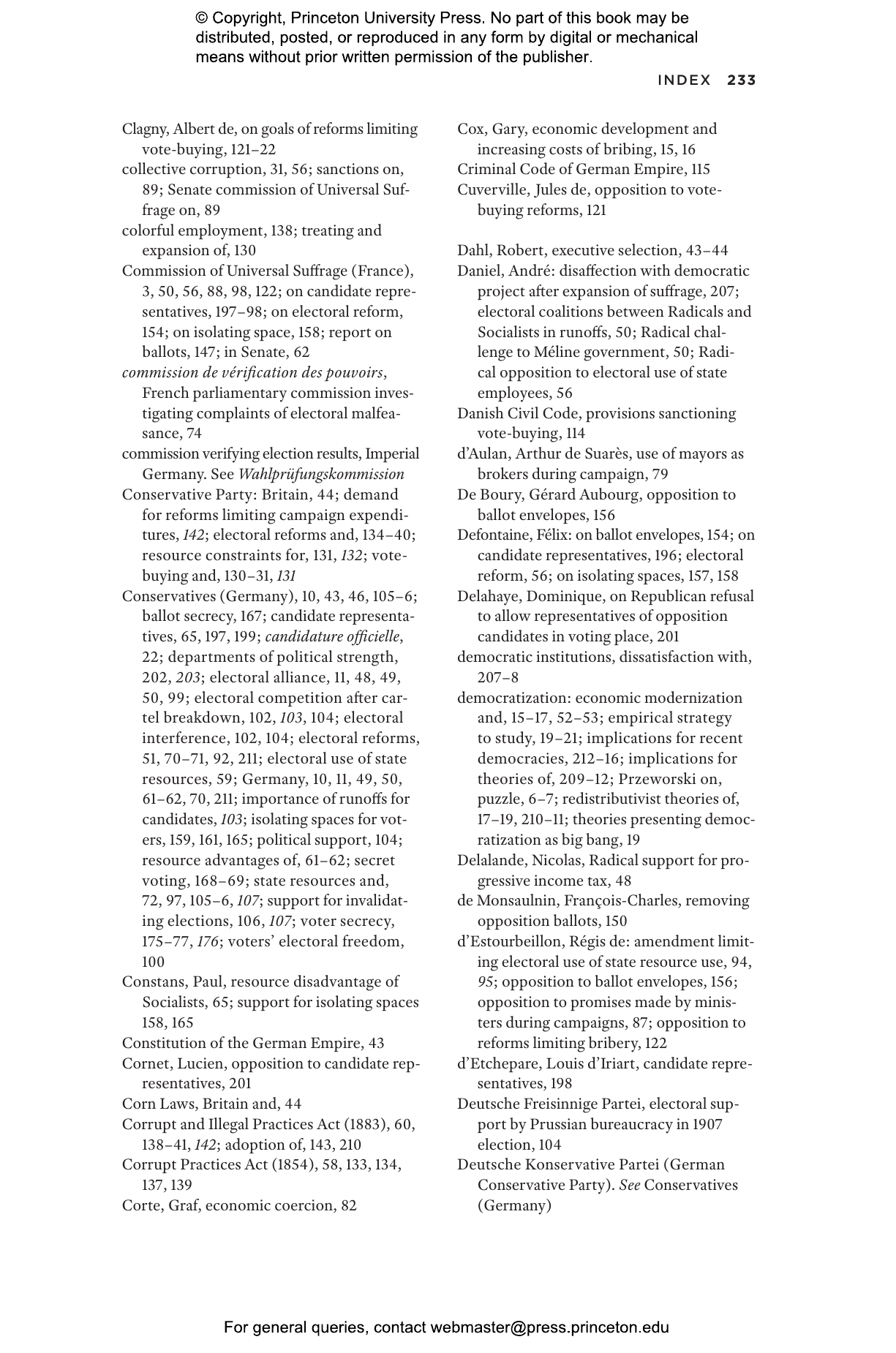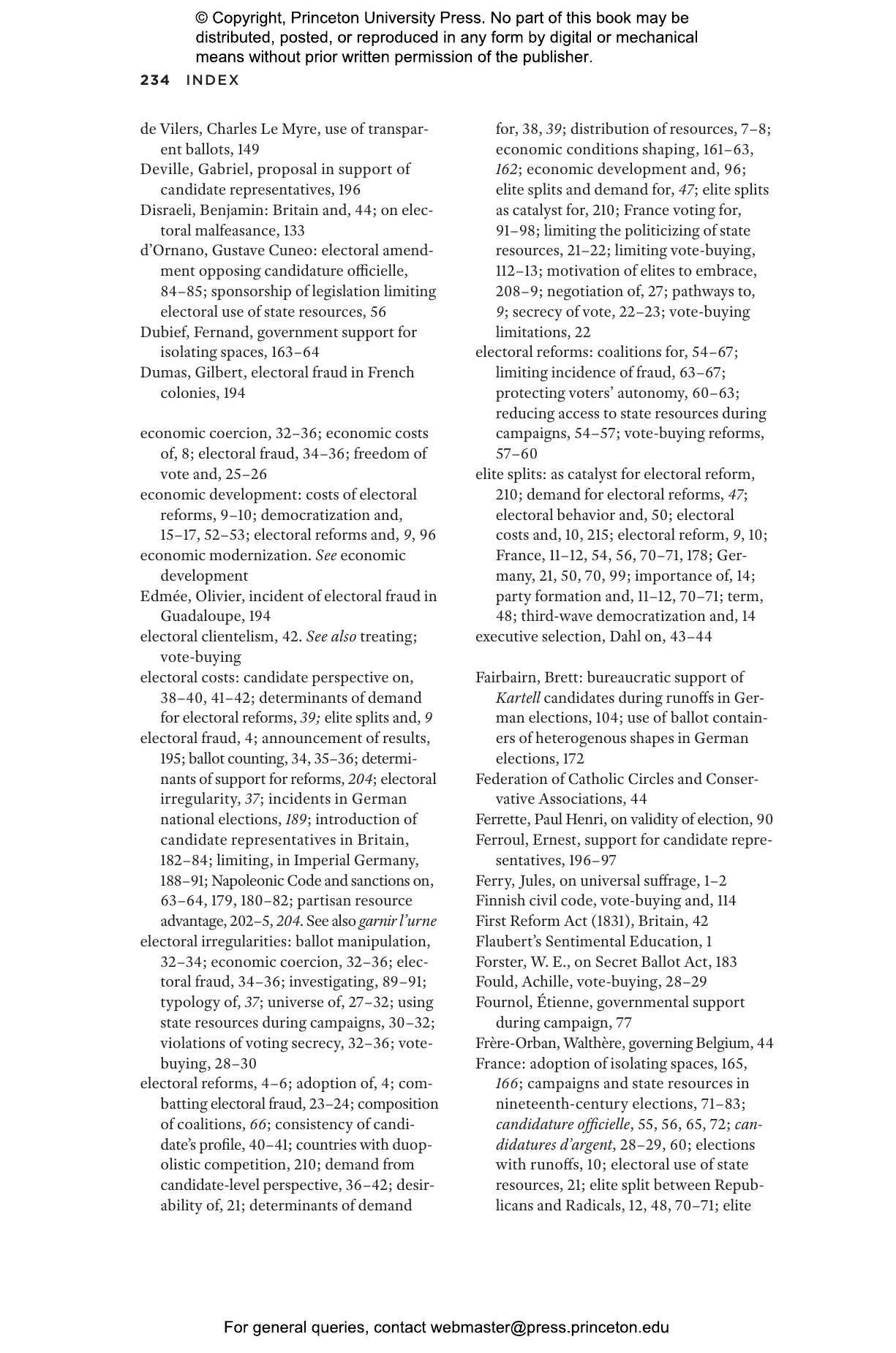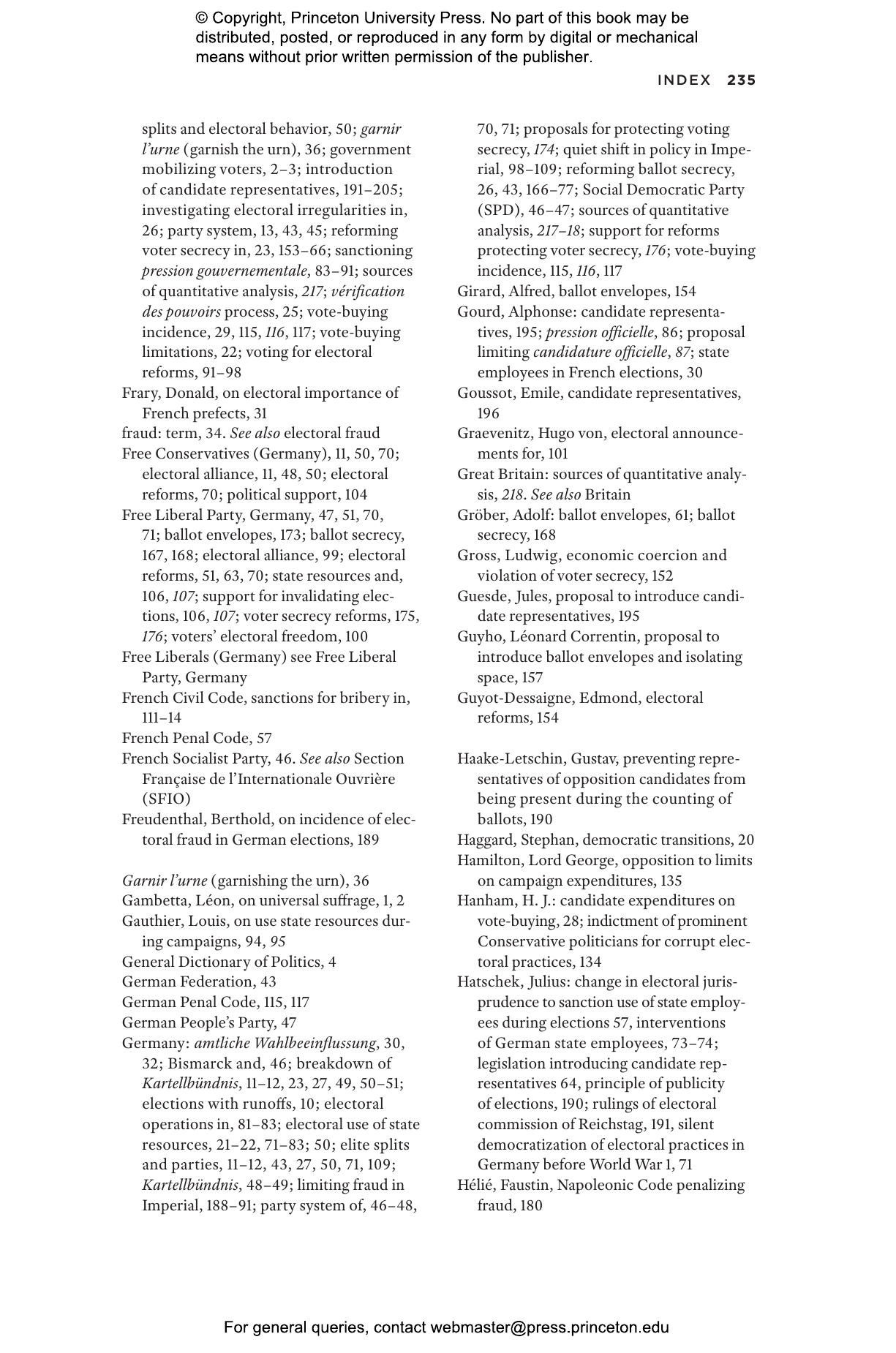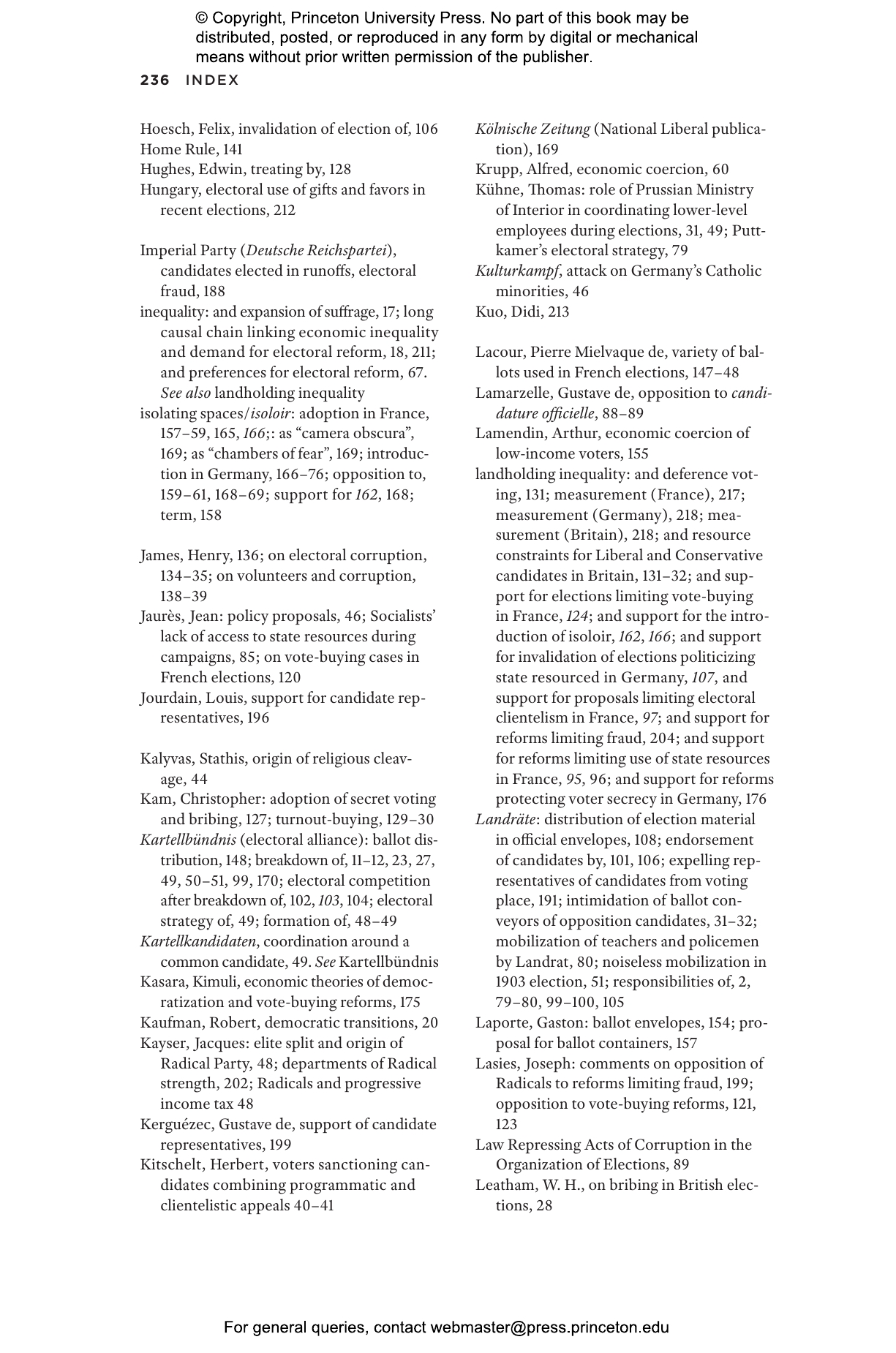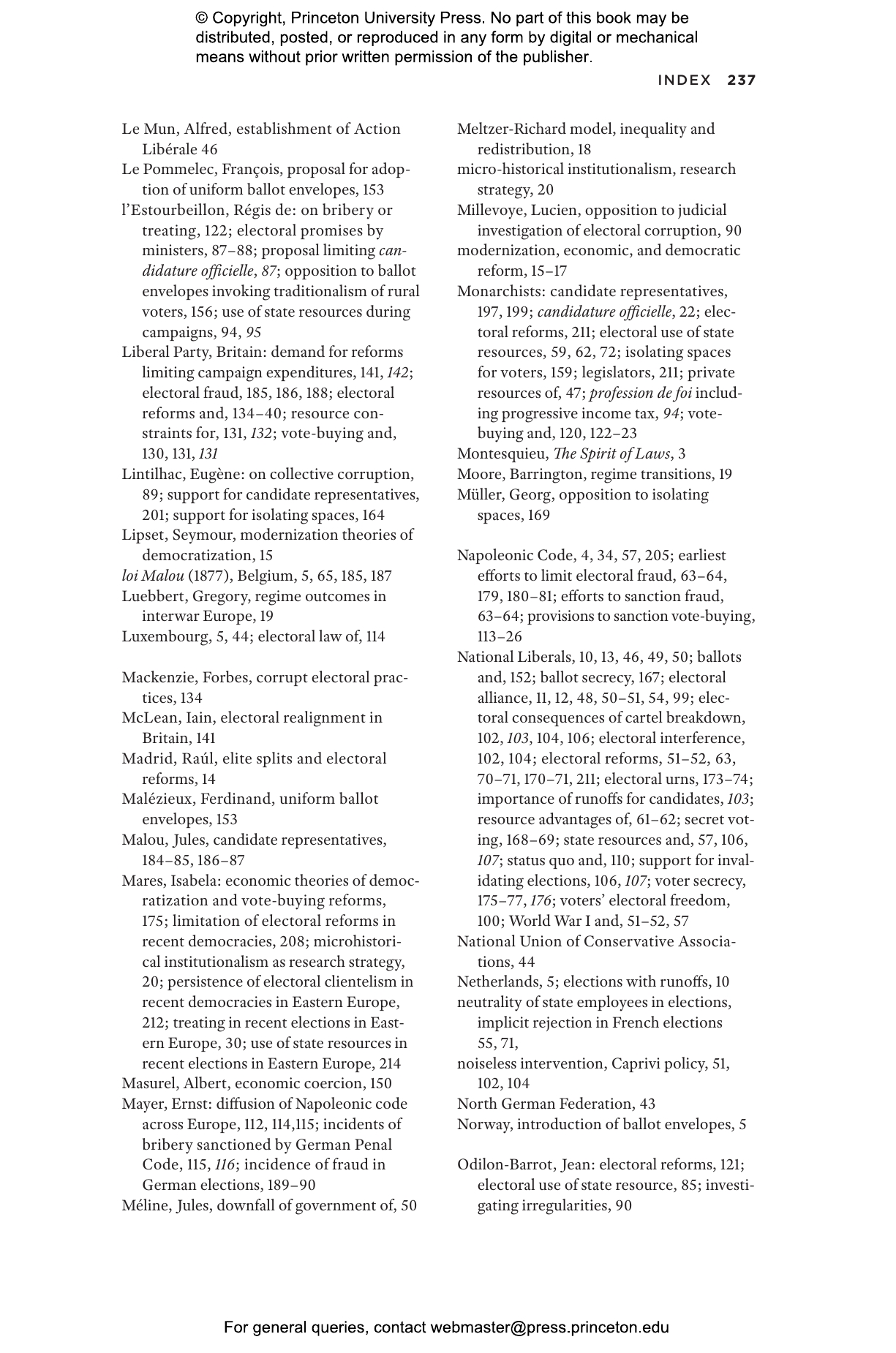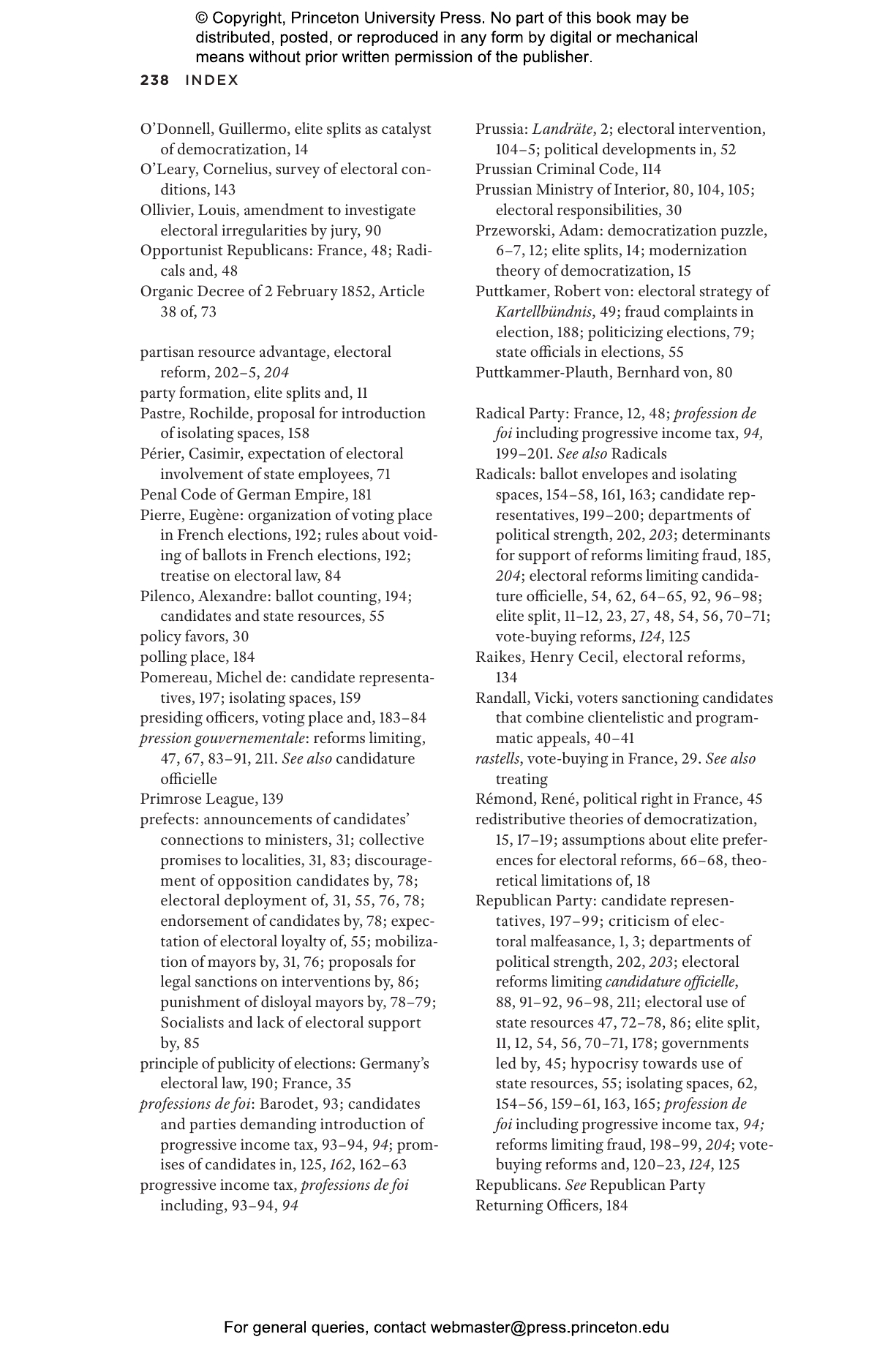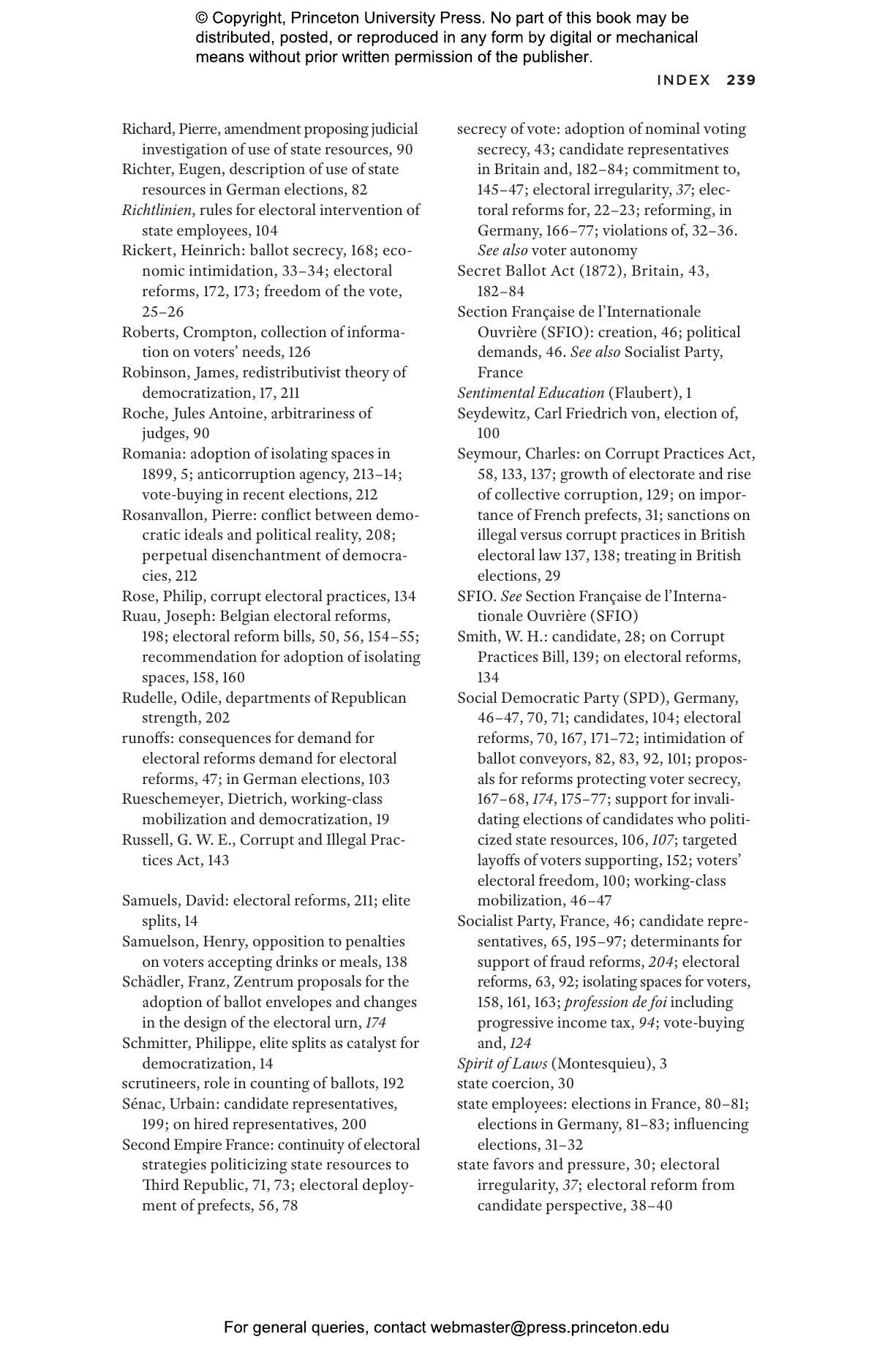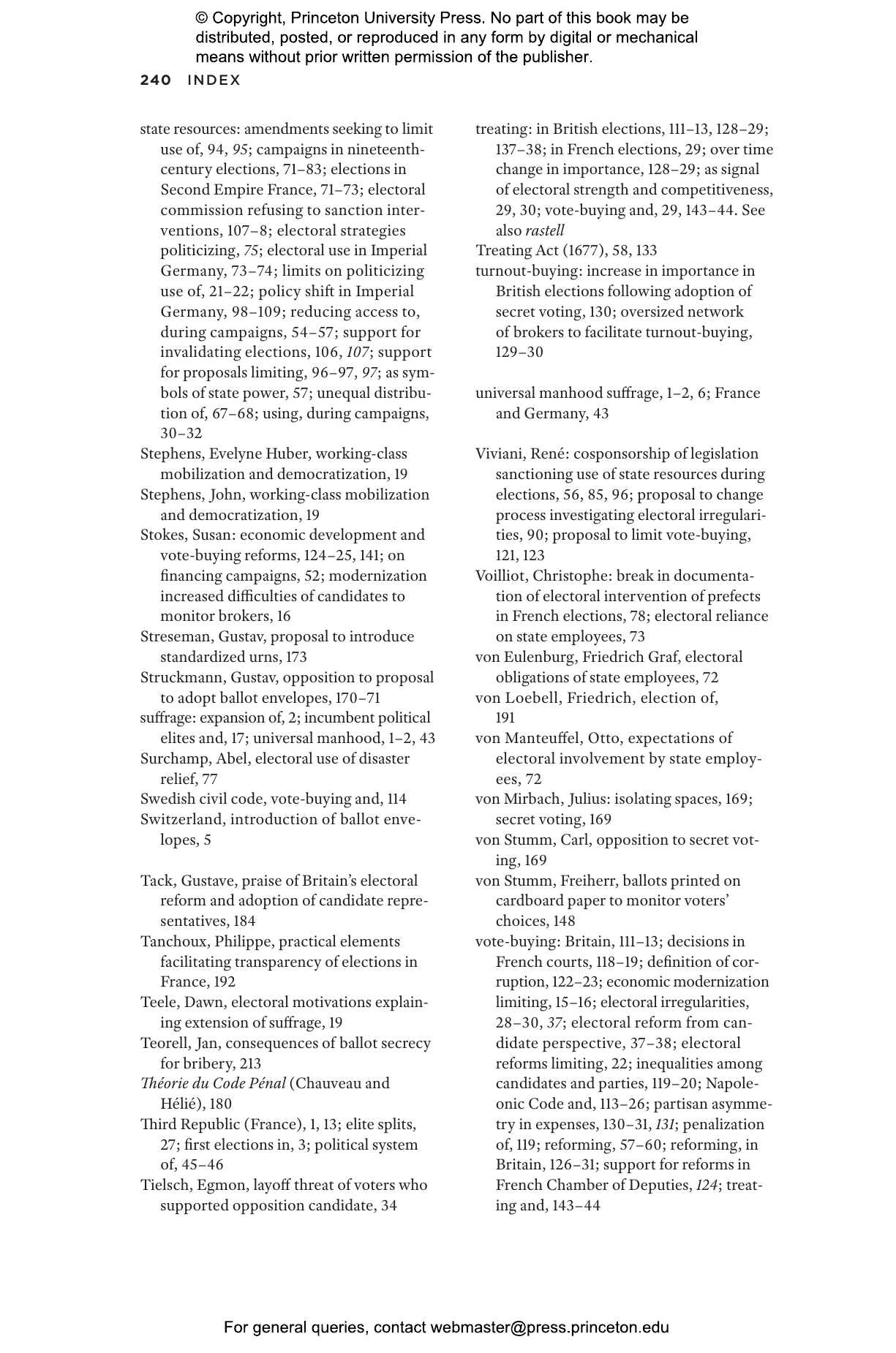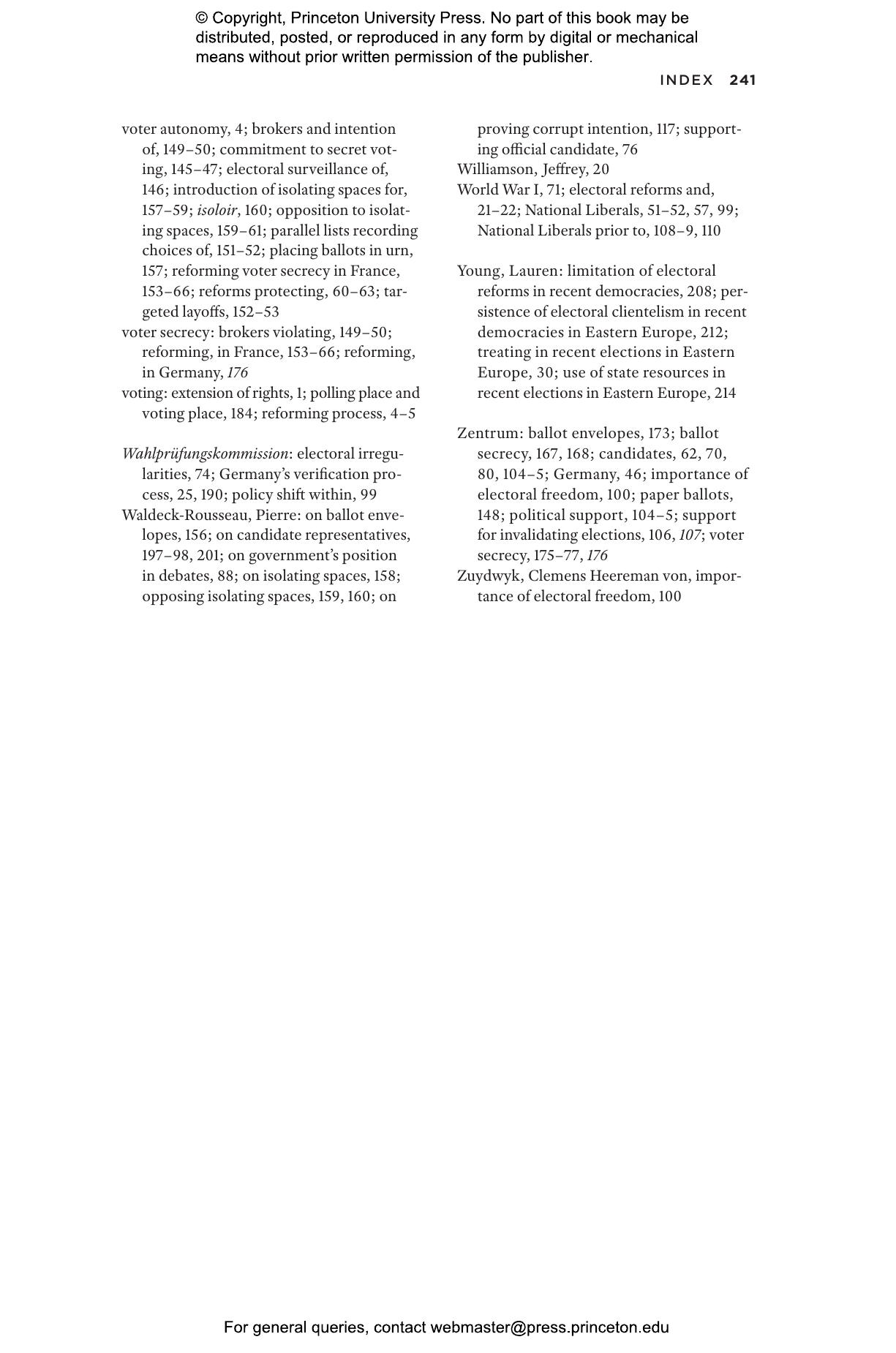Between 1850 and 1918, many first-wave democracies in Europe adopted electoral reforms that reduced the incidence of electoral malfeasance. Drawing on analysis of parliamentary deliberations and roll-call votes in France, Germany, Belgium, and the United Kingdom, Protecting the Ballot explores how these electoral changes came about.
Reforms limiting electoral malfeasance came in a variety of forms. Some reforms imposed harsher punishments for bribing or the politicization of state resources during campaigns. Other changes improved electoral secrecy, providing better protection of voters’ autonomy. By mandating the presence of candidate representatives supervising electoral operations, reforms also reduced the incidence of electoral fraud. Isabela Mares documents how elite splits facilitated the formation of parliamentary majorities in support of electoral reforms. The political composition of these majorities varied across countries and across issue area, depending on the distribution of political resources and the economic and electoral costs incurred by politicians with opportunities to engage in malfeasance. Unpacking the electoral determinants of the demand for reforms, Mares offers an alternative to theories of democratization that emphasize economic considerations alone.
By studying the successful adoption of reforms limiting electoral irregularities in first-wave democratic transitions, Protecting the Ballot sheds light on the opportunities and obstacles for ending electoral wrongdoing in recent democracies.
Awards and Recognition
- Winner of the European Politics & Society Best Book Award, American Political Science Association
Isabela Mares is the Arnold Wolfers Professor of Political Science and the director of the European Union Center at Yale University. Her books include (with Lauren E. Young) Conditionality and Coercion: Electoral Clientelism in Eastern Europe and Taxation, Wage Bargaining, and Unemployment.
"Mares . . . makes use of extensive research to demonstrate that reforms to eliminate corruption were opposed by incumbent powers until political fragmentation or ‘elite split’—as in France and Germany—prolonged competition and increased electoral costs, creating incentives for cooperation."—Choice
“Early European democracies were deeply flawed at their founding in ways that would offend modern democratic sensibilities. How did they become the democratic exemplars that have since set the tone for modern freedom and political choice? This book provides a deep dive into the struggle to clean up elections. Mares draws on a rich collection of parliamentary deliberations and analyzes critical votes for election reforms to deliver an original and convincing account of this historic transformation. The book is a must-read for students of democracy.”—Michael Albertus, University of Chicago
“Why would incumbent politicians ever agree to electoral reform that might undermine their position? In this pathbreaking book, Isabela Mares demonstrates how splits among the political elite set the scene for a new age of free and fair elections. Using a trove of original historical data, Mares fundamentally reshapes our understanding of democratization.”—Ben Ansell, Nuffield College and University of Oxford
“Mares has produced a work that is learned, engaging, and deeply insightful. Using extensive historical evidence, she shows just how much effort was required to end electoral corruption in the first wave of modern democracies, and how a split in the political elite could offer a window of opportunity for reform. These lessons of history are all the more welcome in an era when many express disenchantment with democracy today.”—David Stasavage, author of The Decline and Rise of Democracy
“Deftly wielding the micro-historical approach that she helped to define, Isabela Mares elegantly demonstrates that democratization was not a ‘big bang’ but rather a series of electoral reforms that hinge on the incentives of legislators and dynamic changes in electoral coalitions.”—Dawn Teele, Johns Hopkins University
